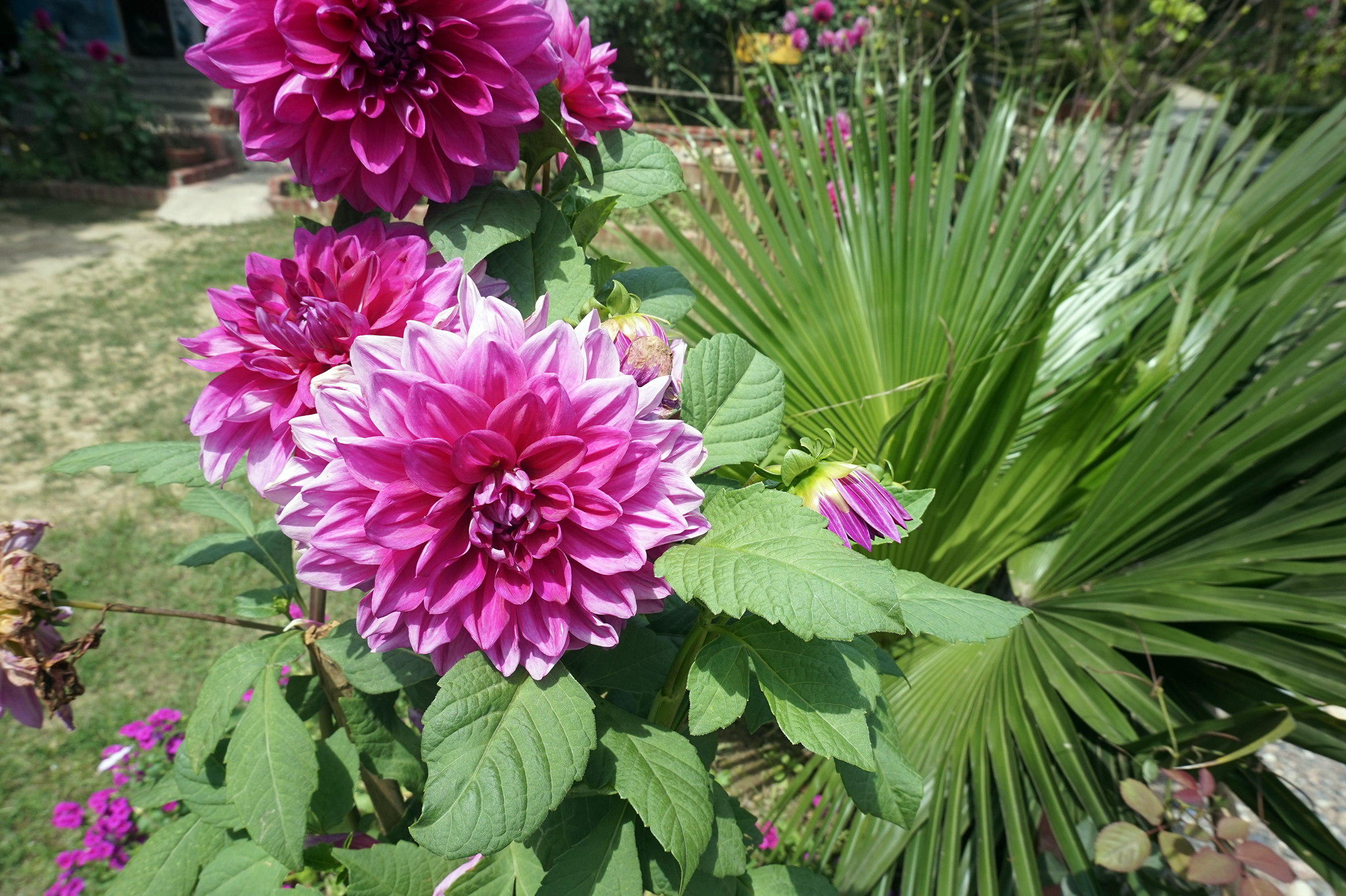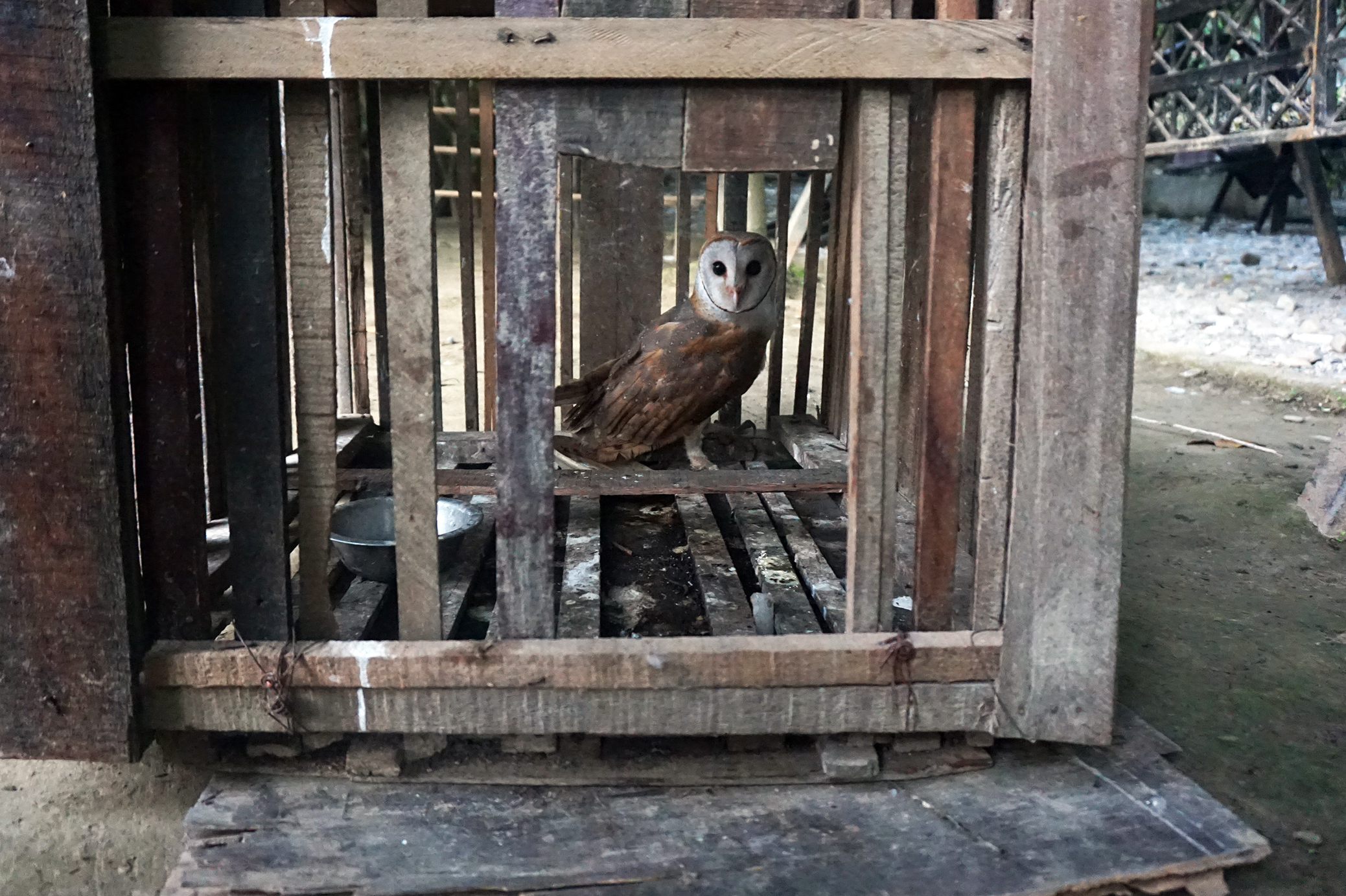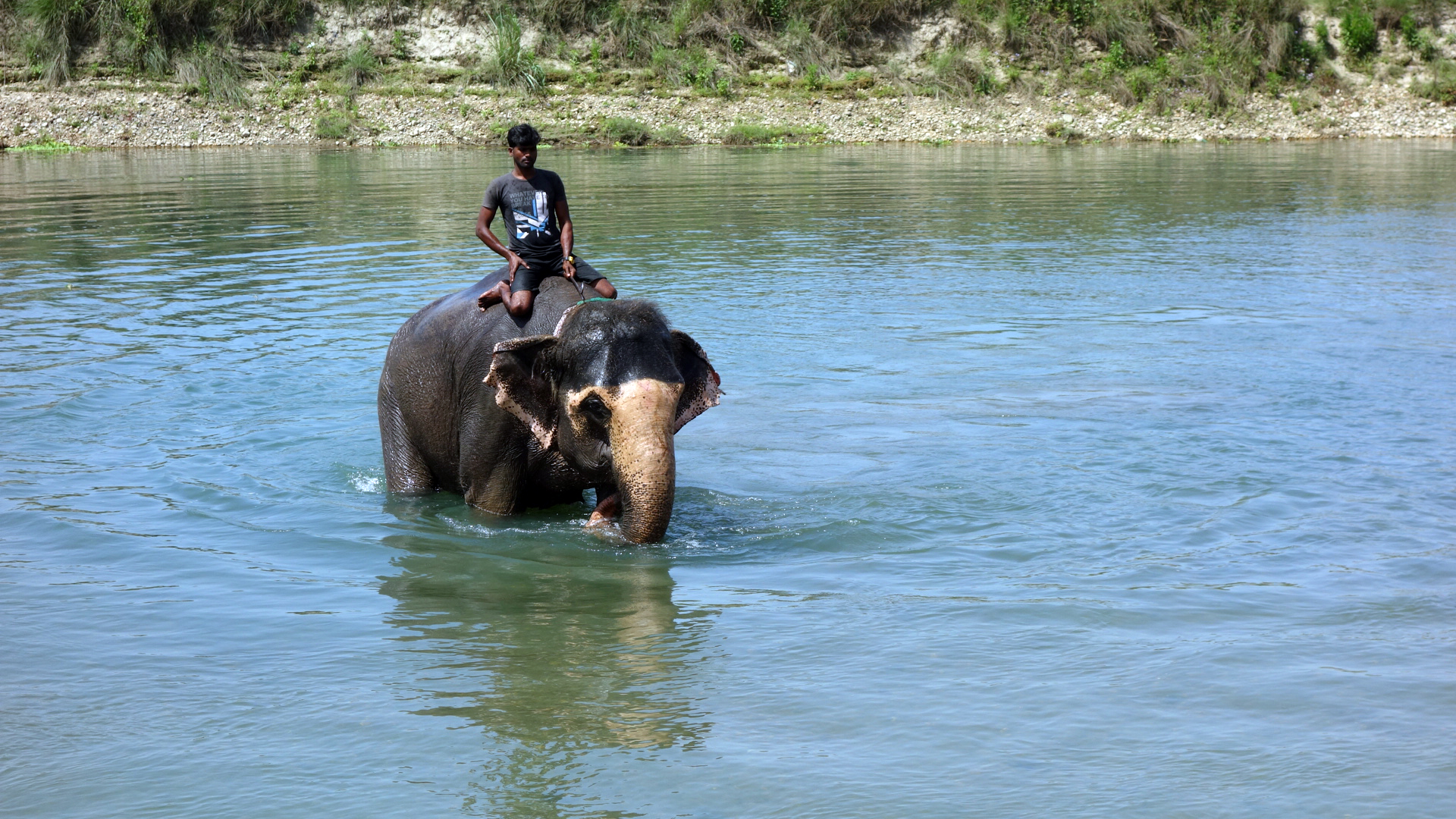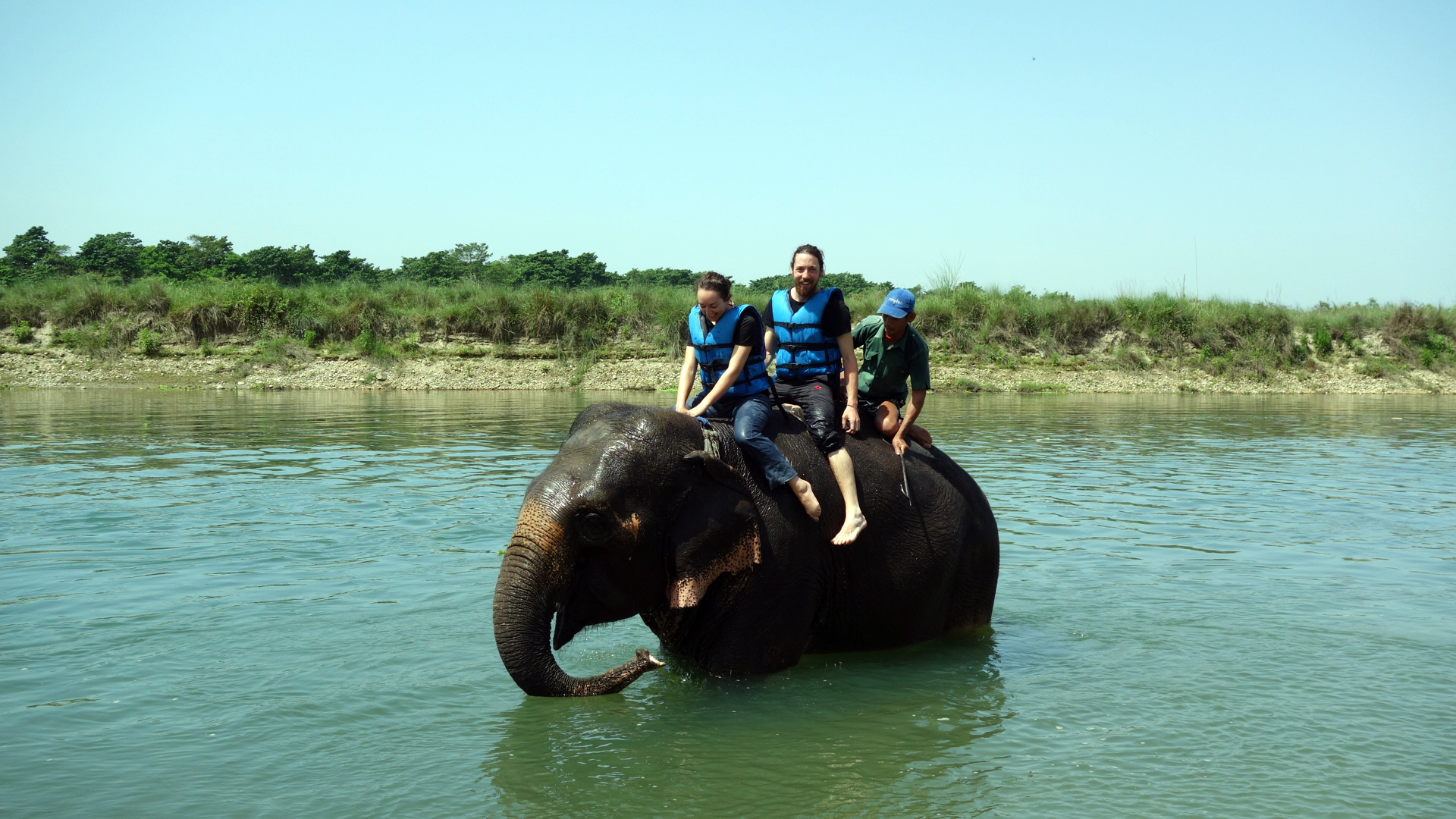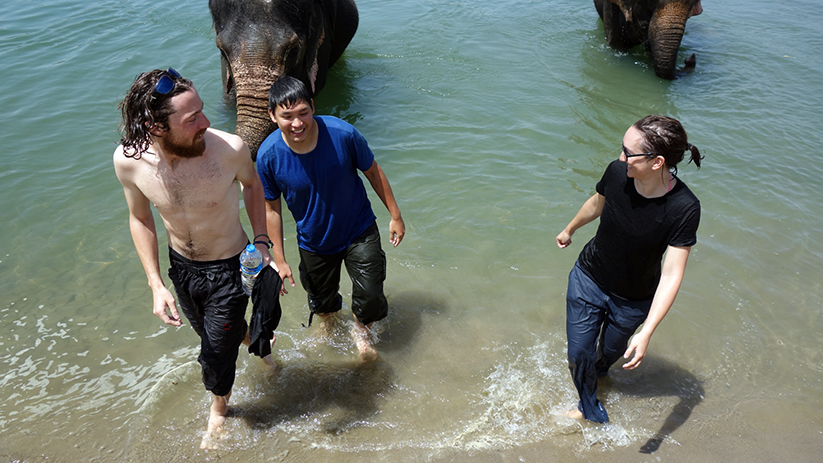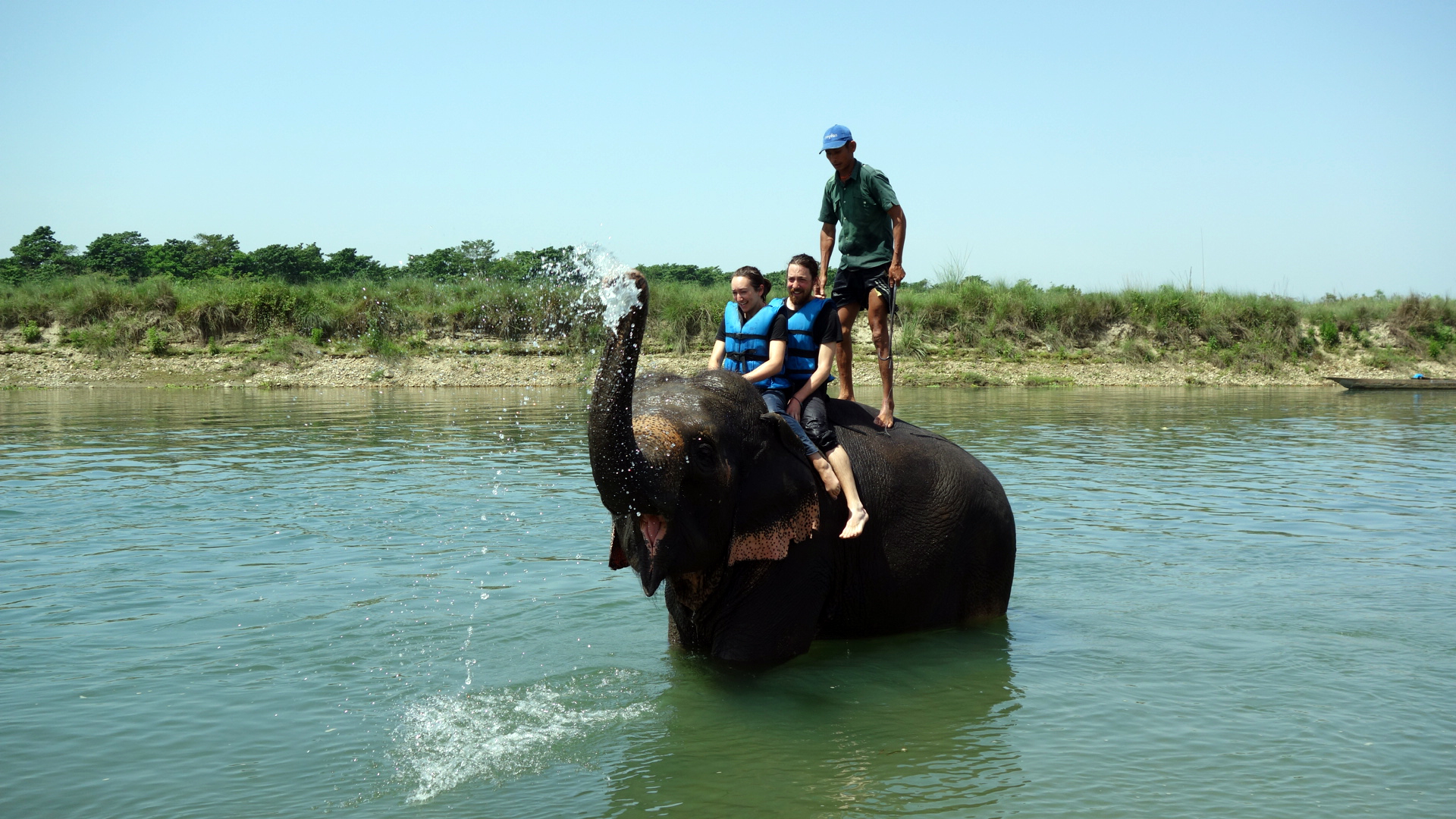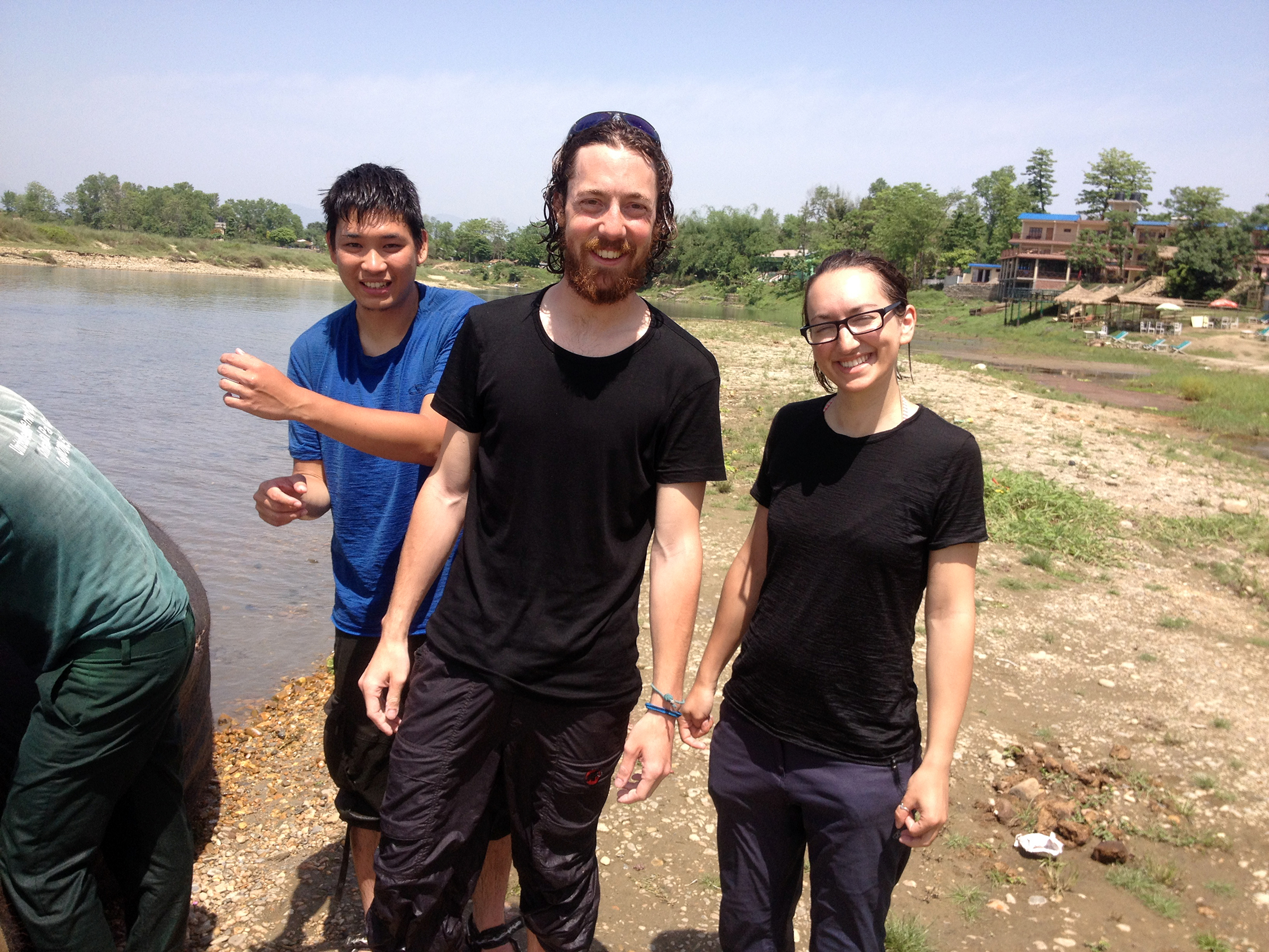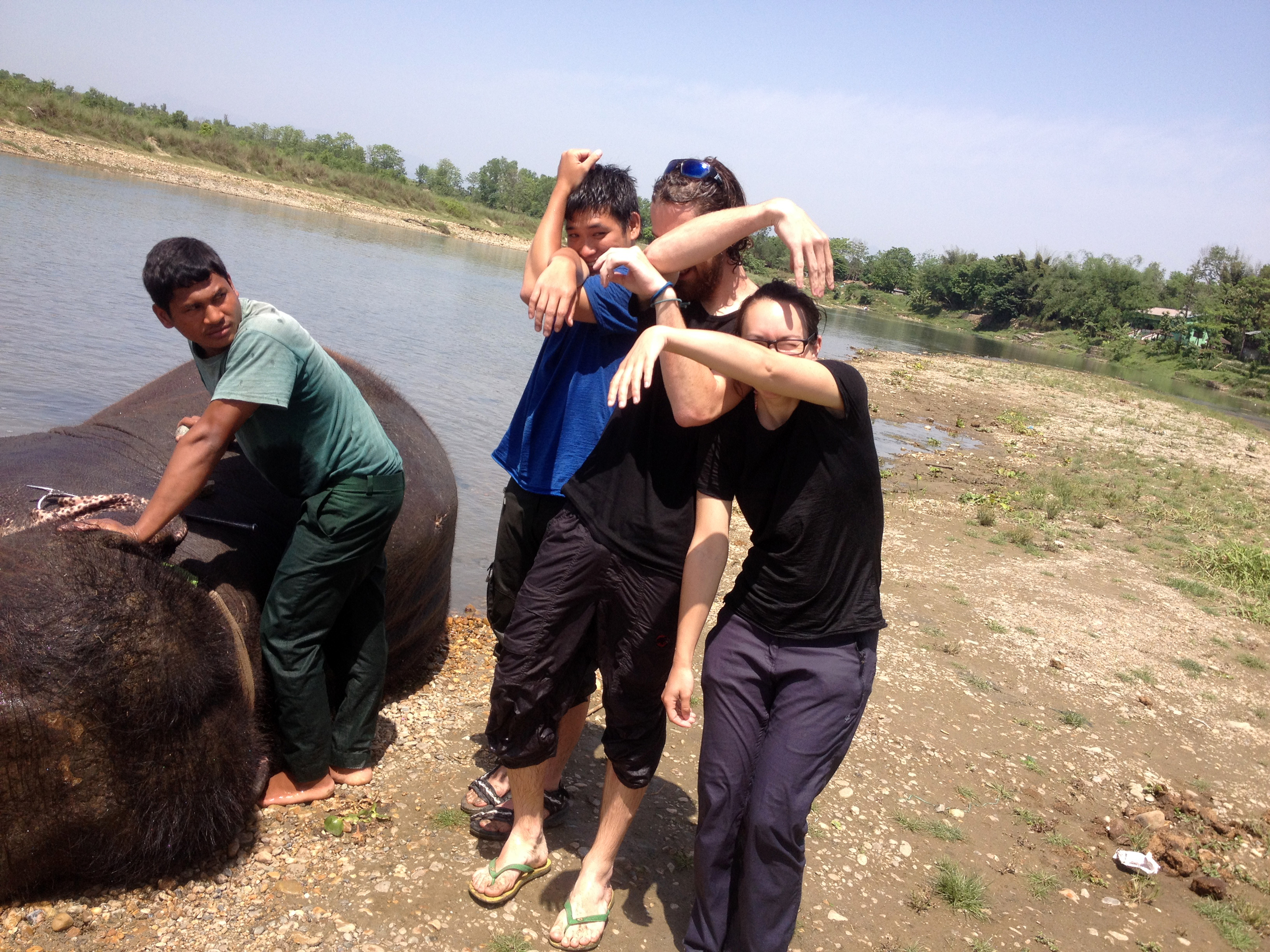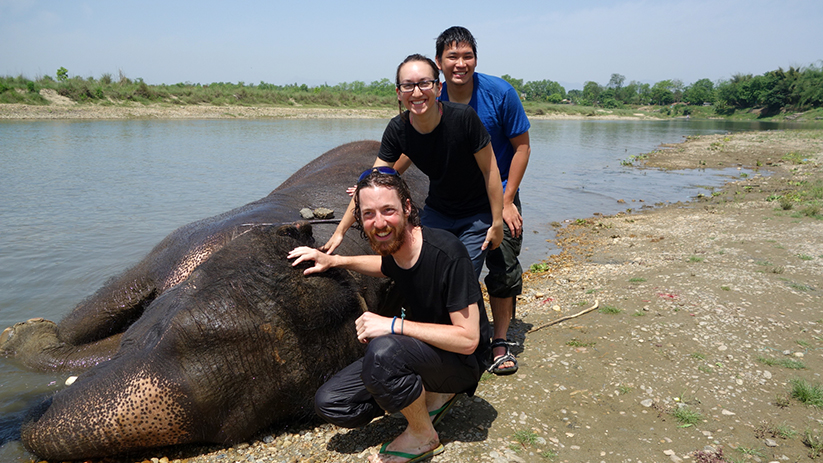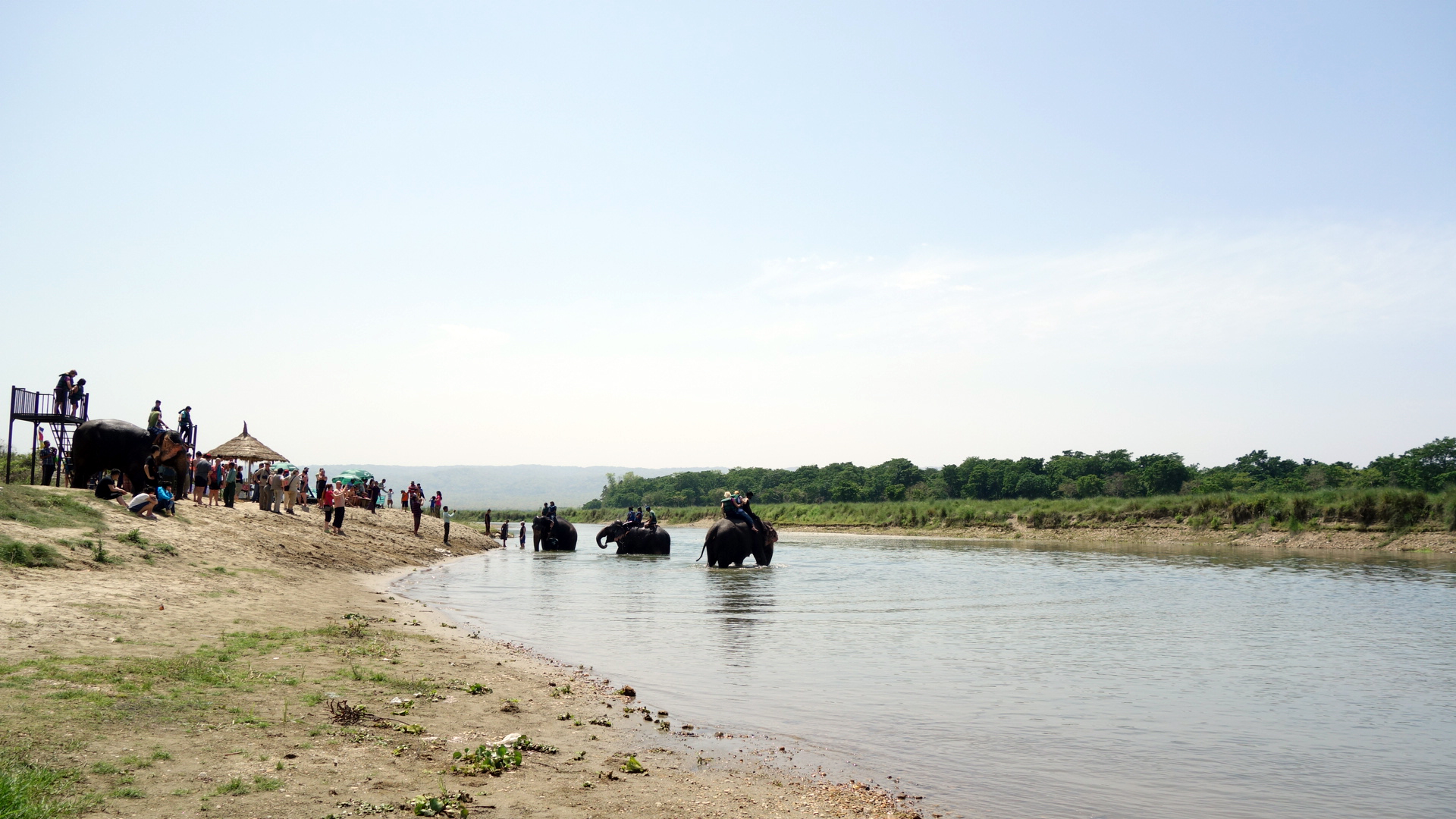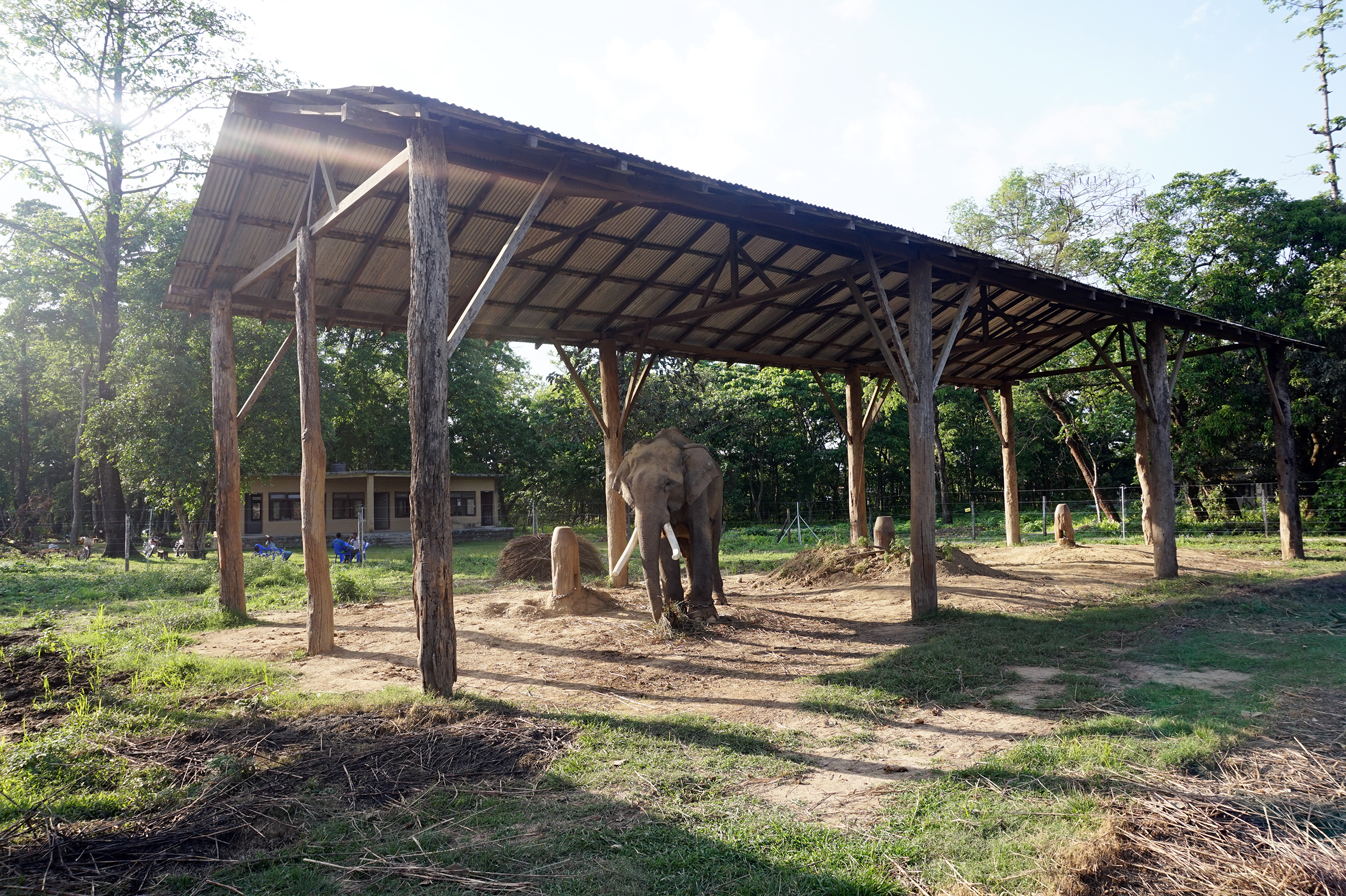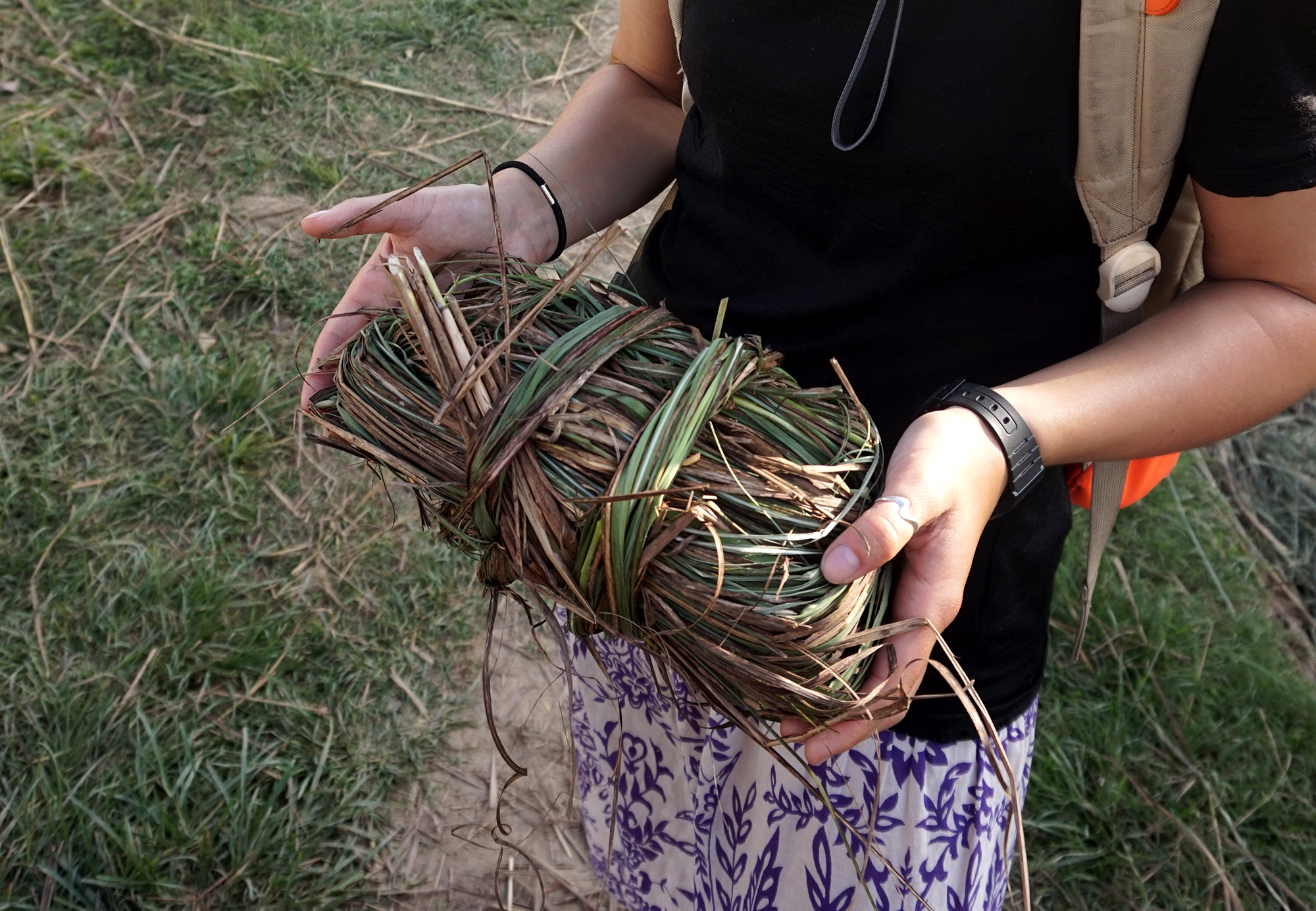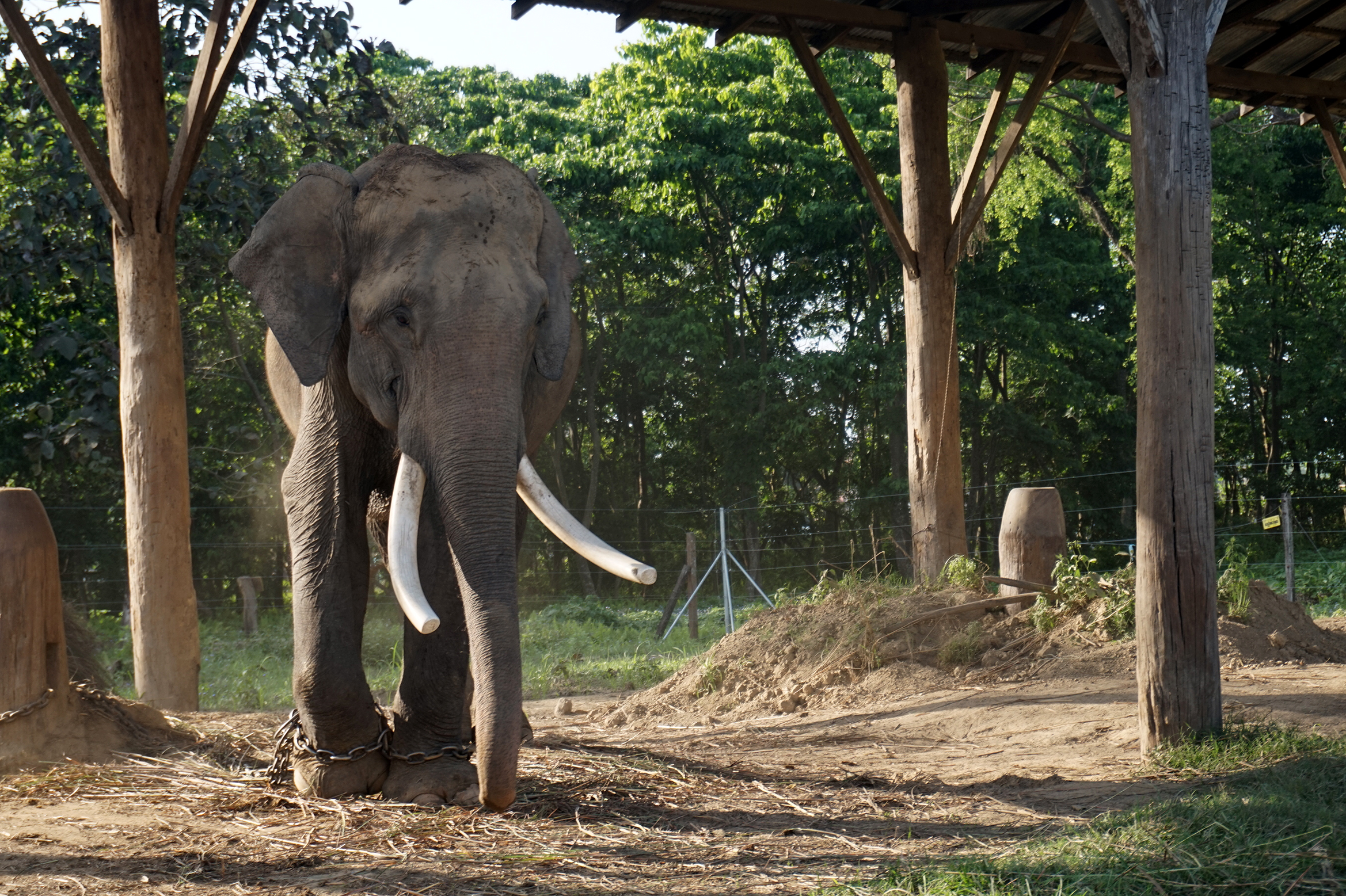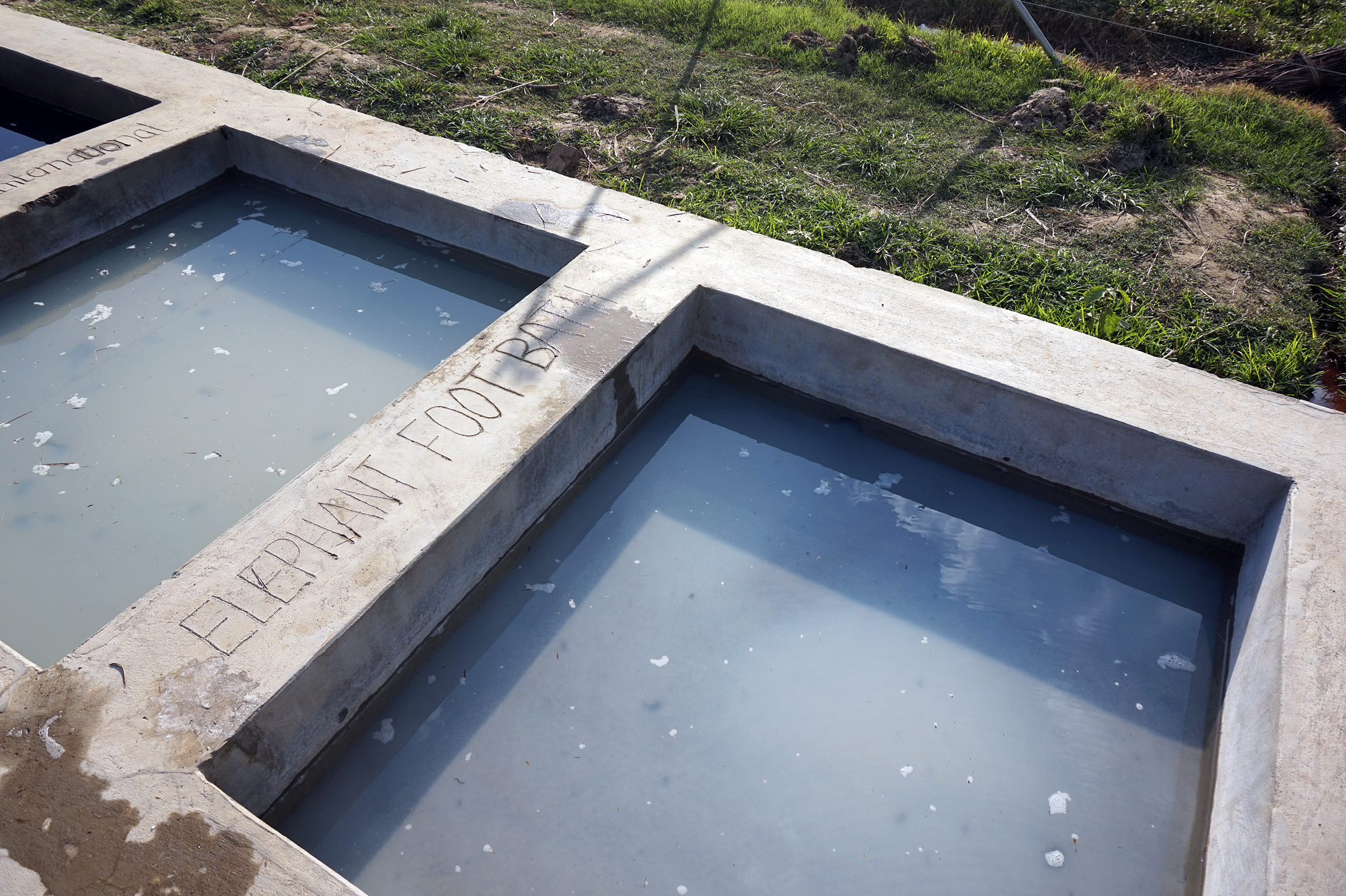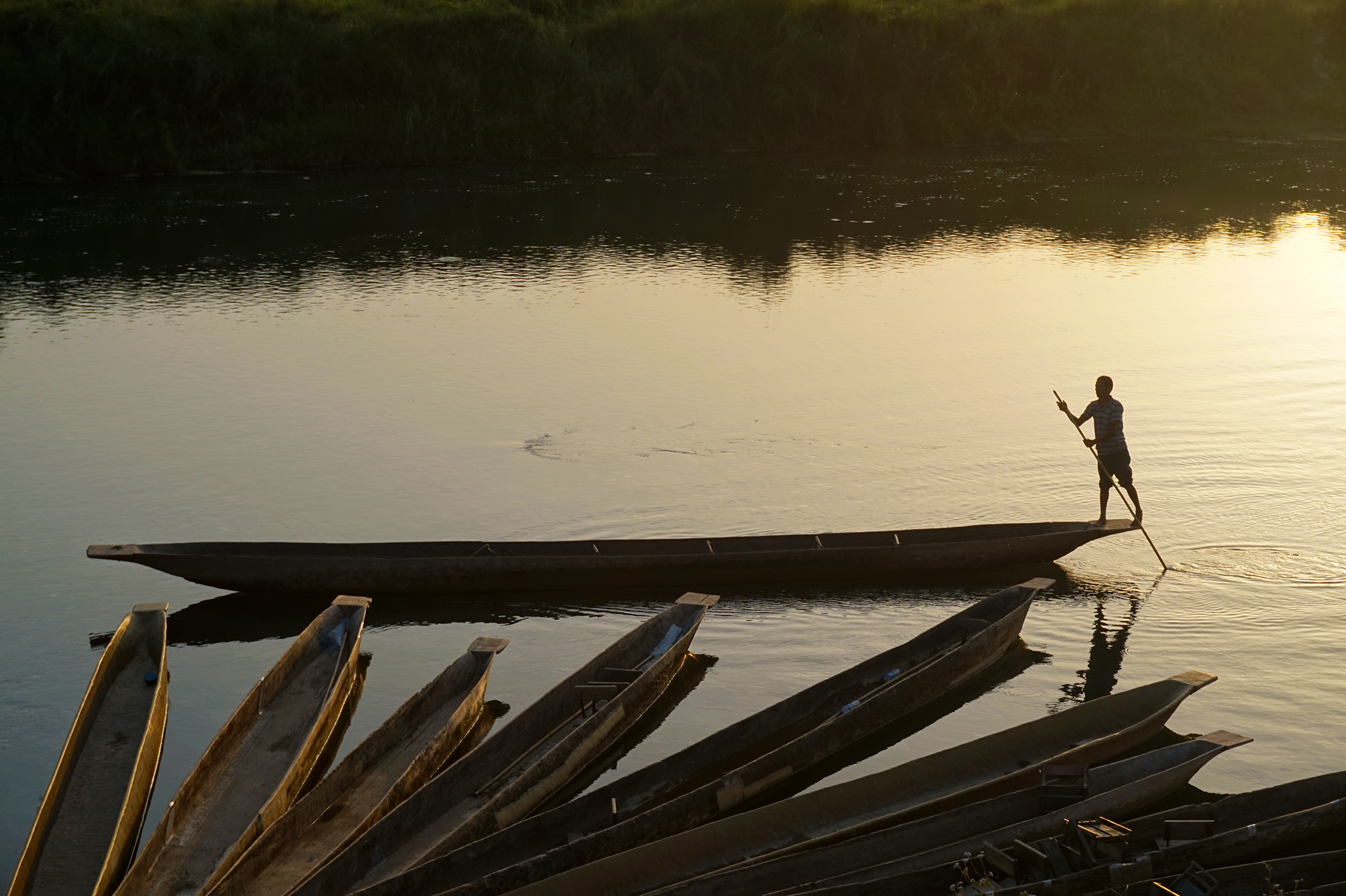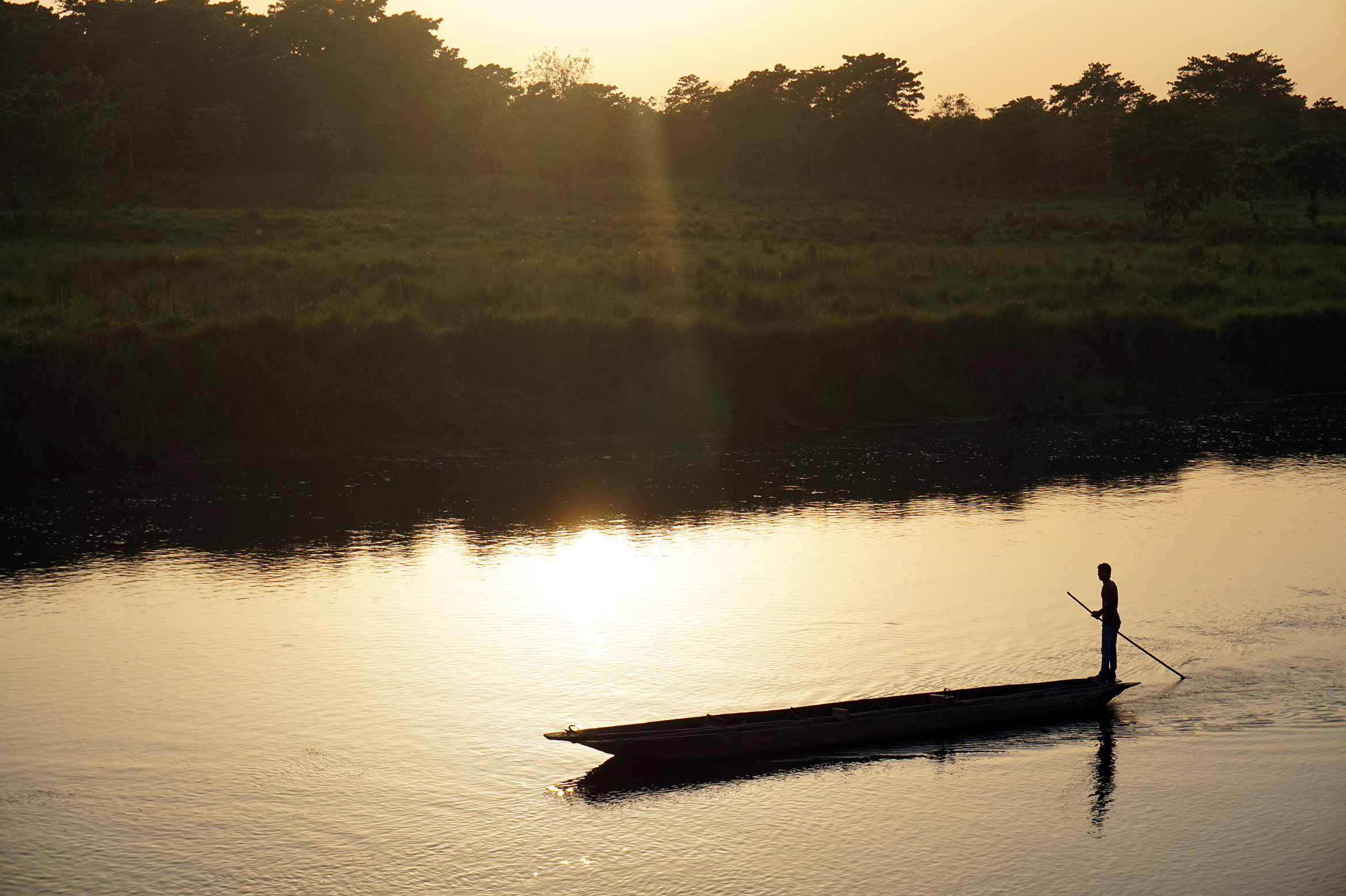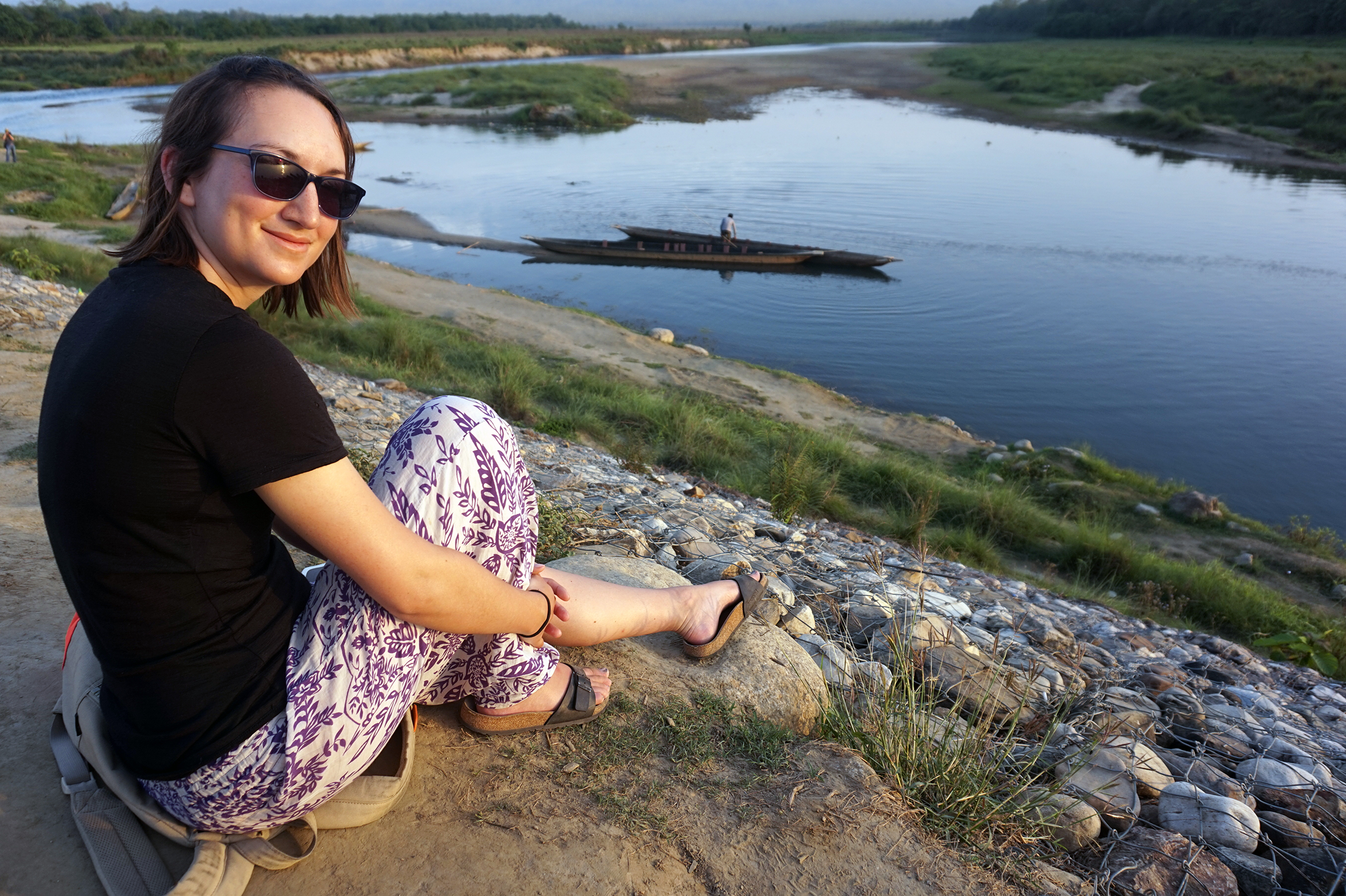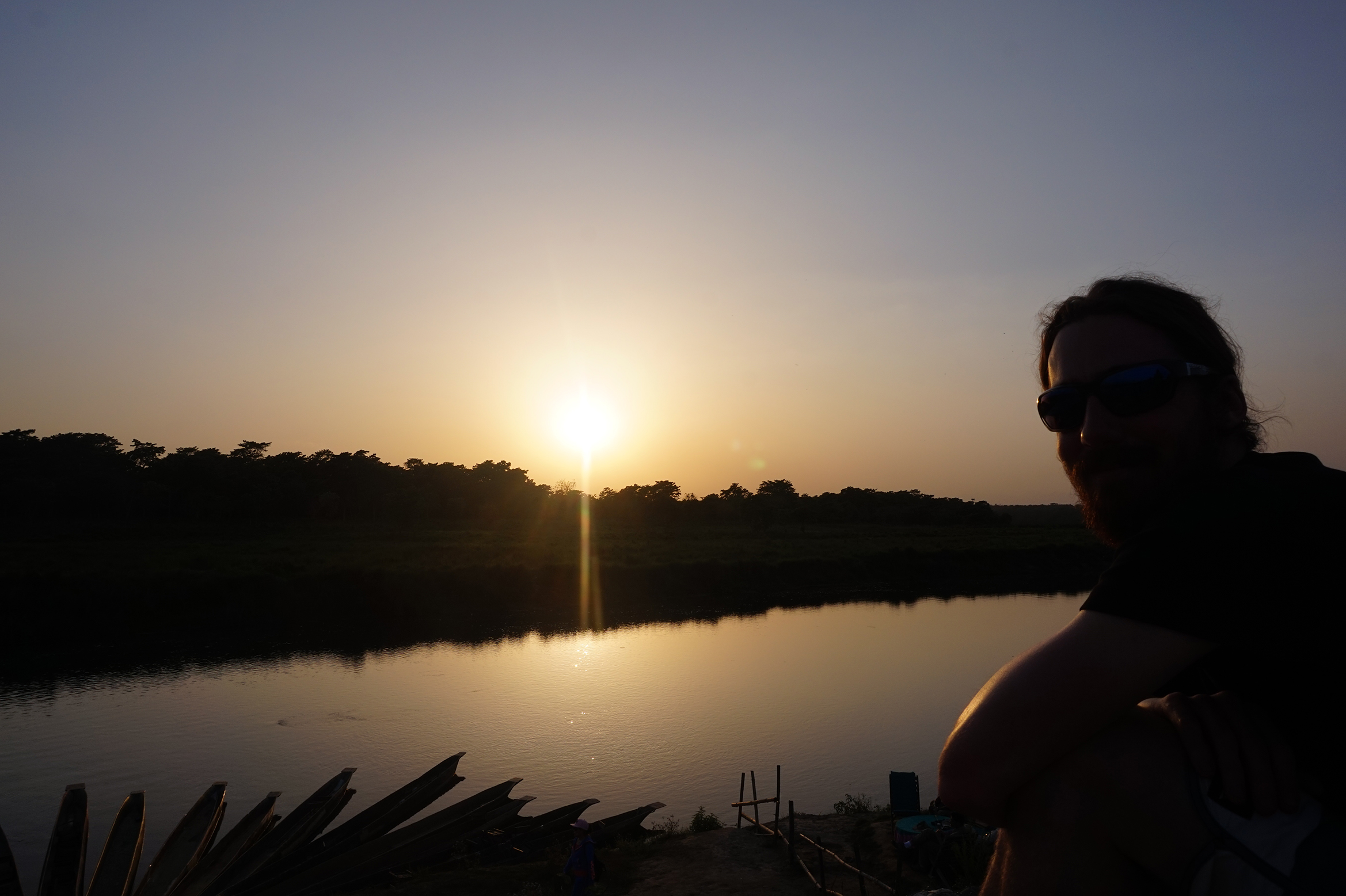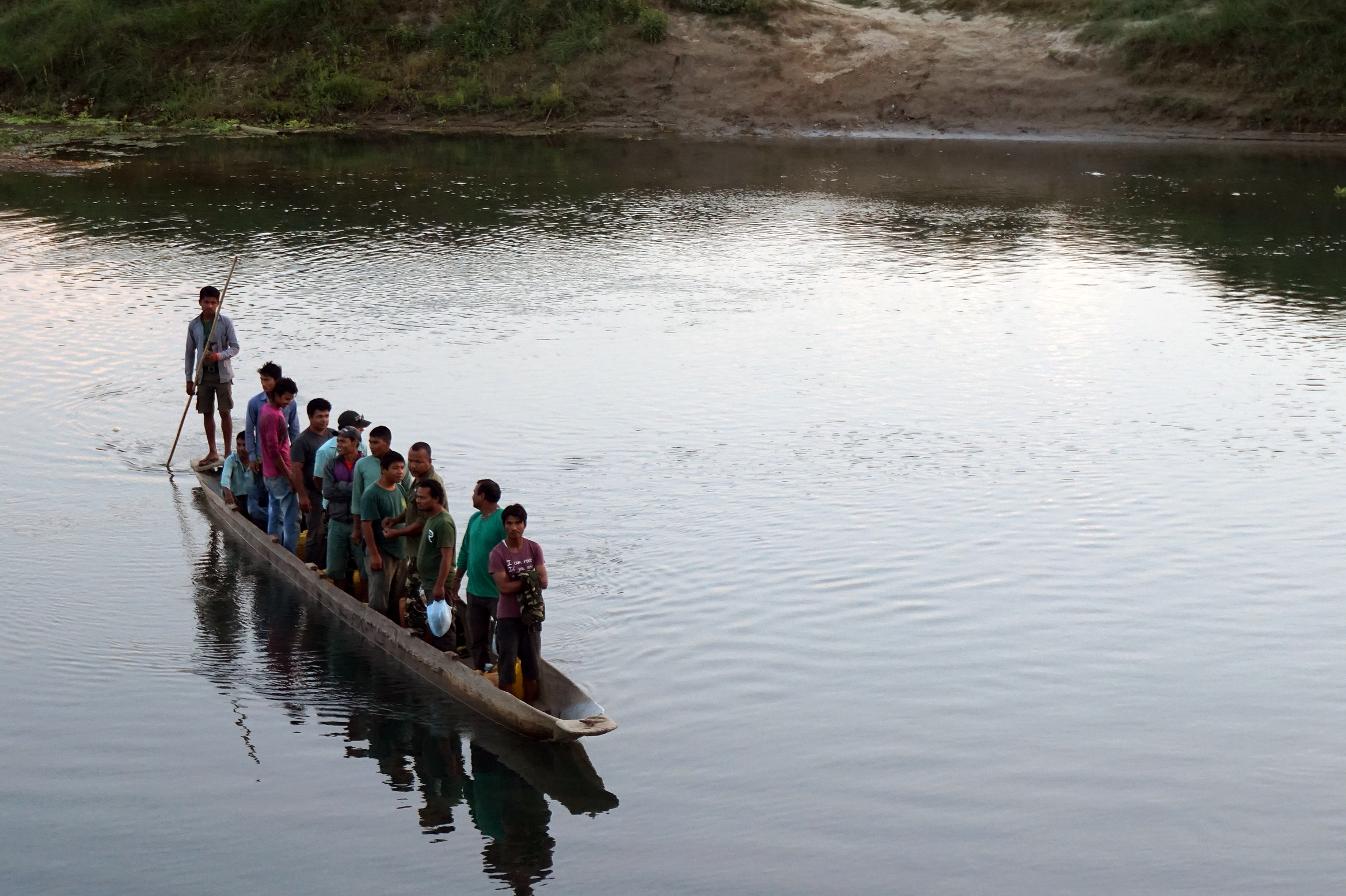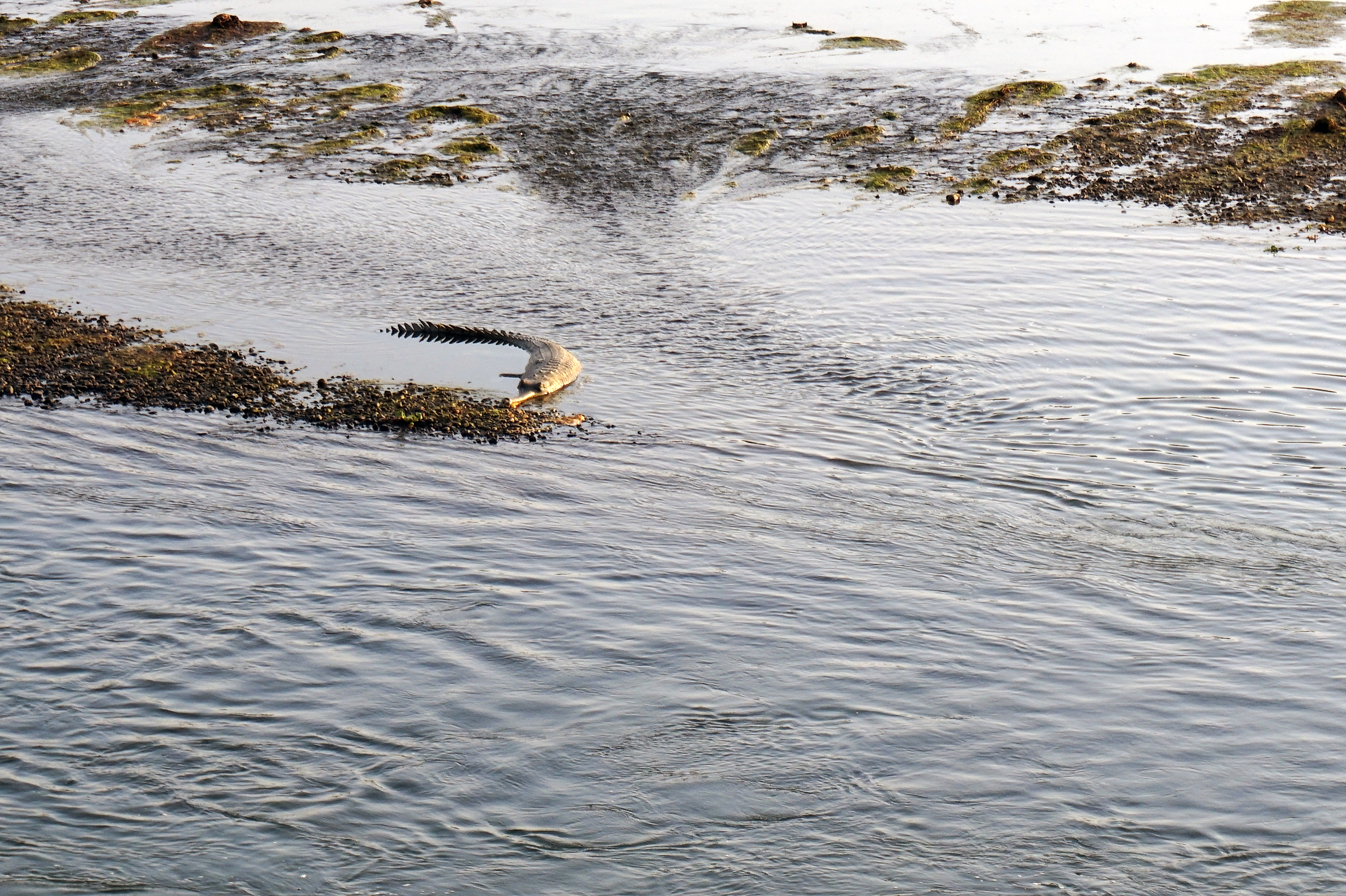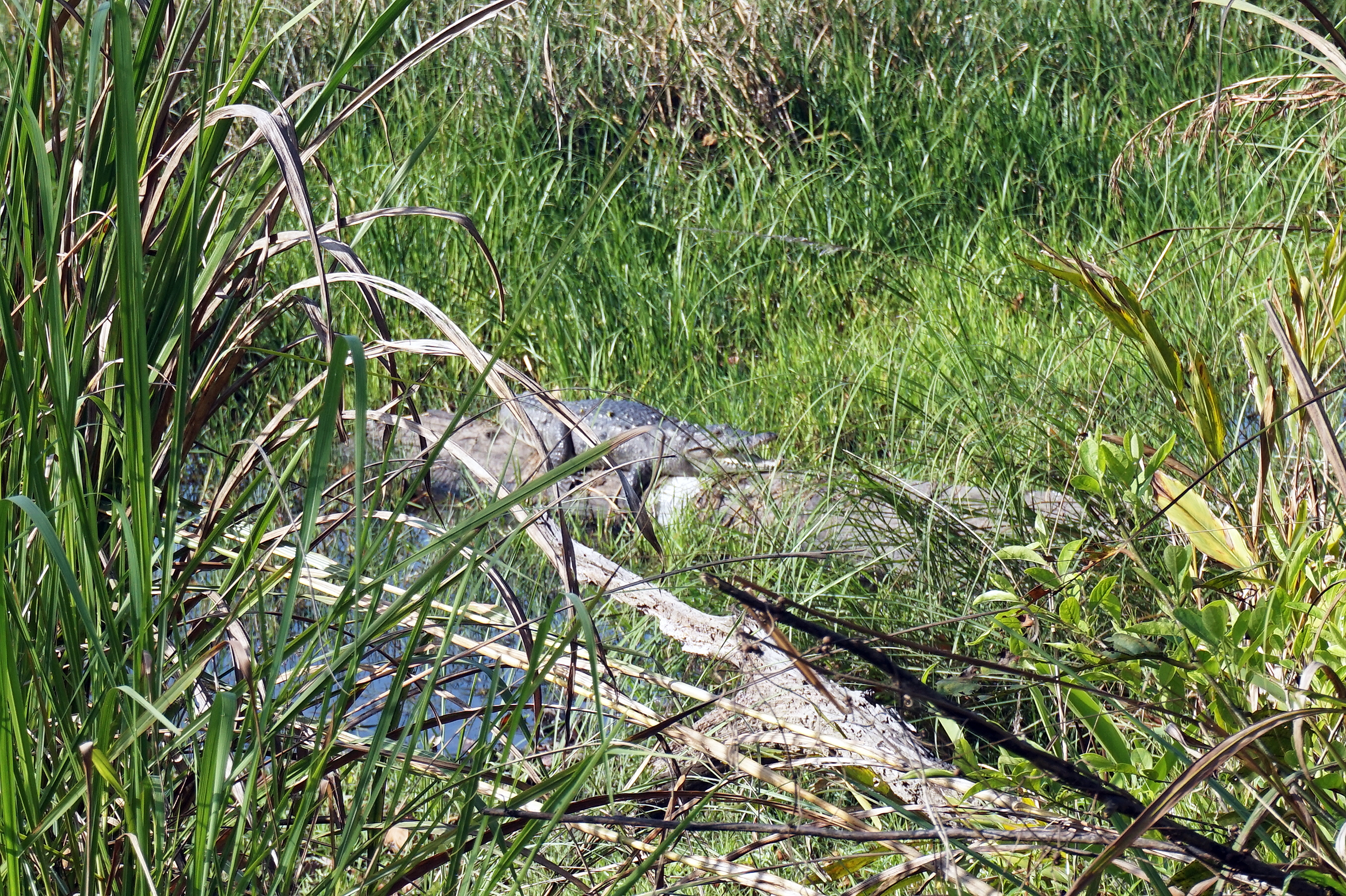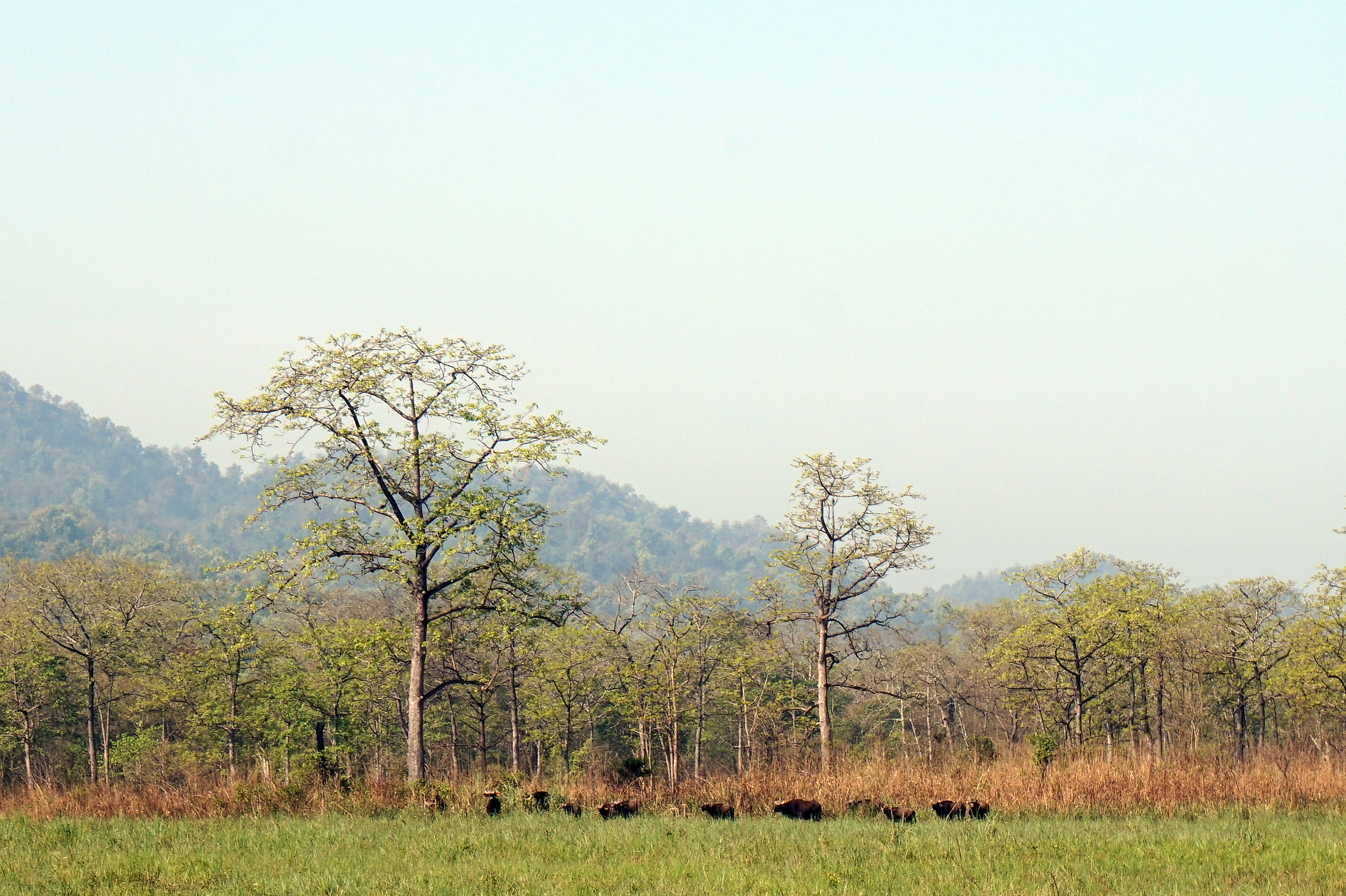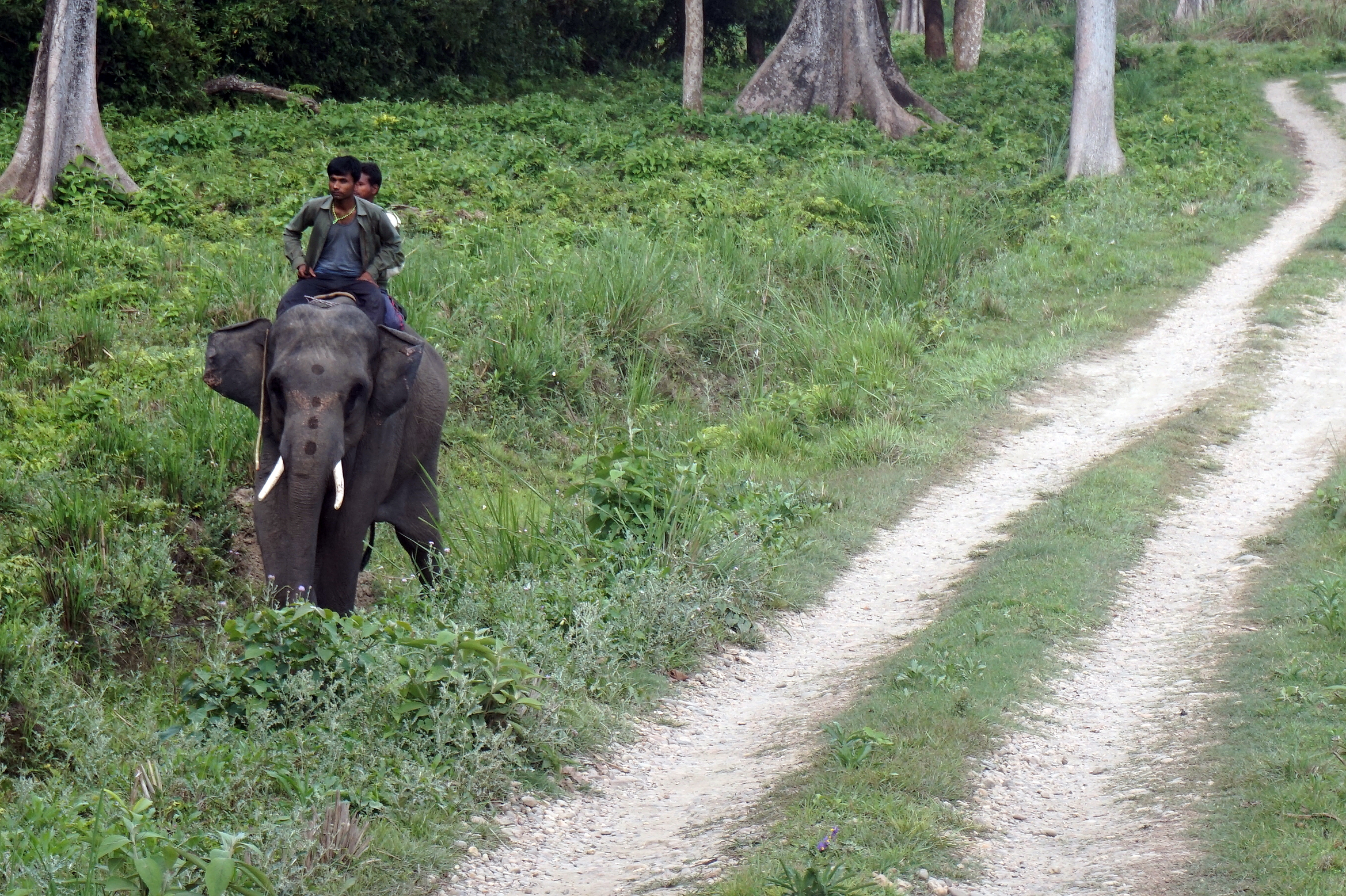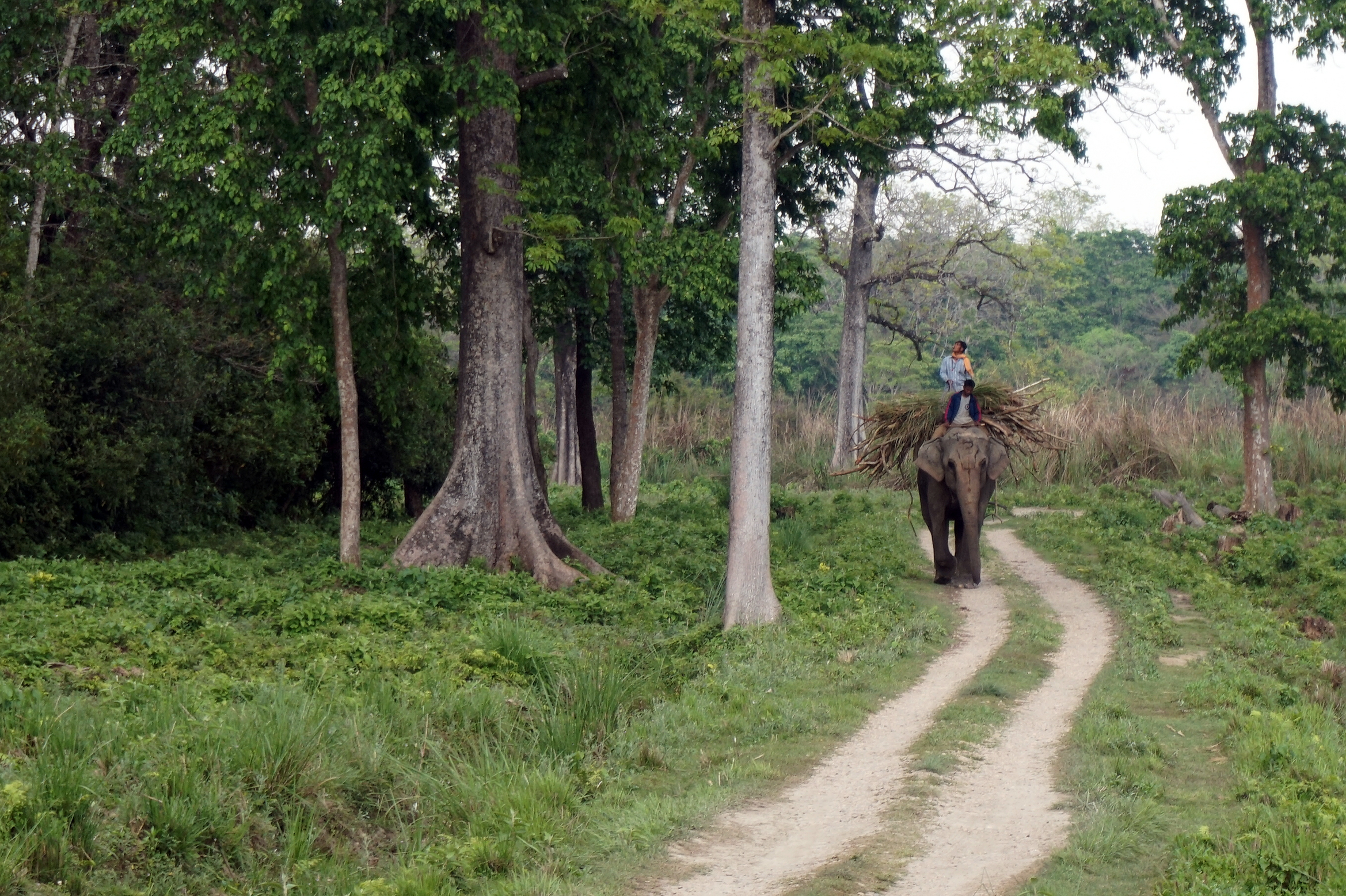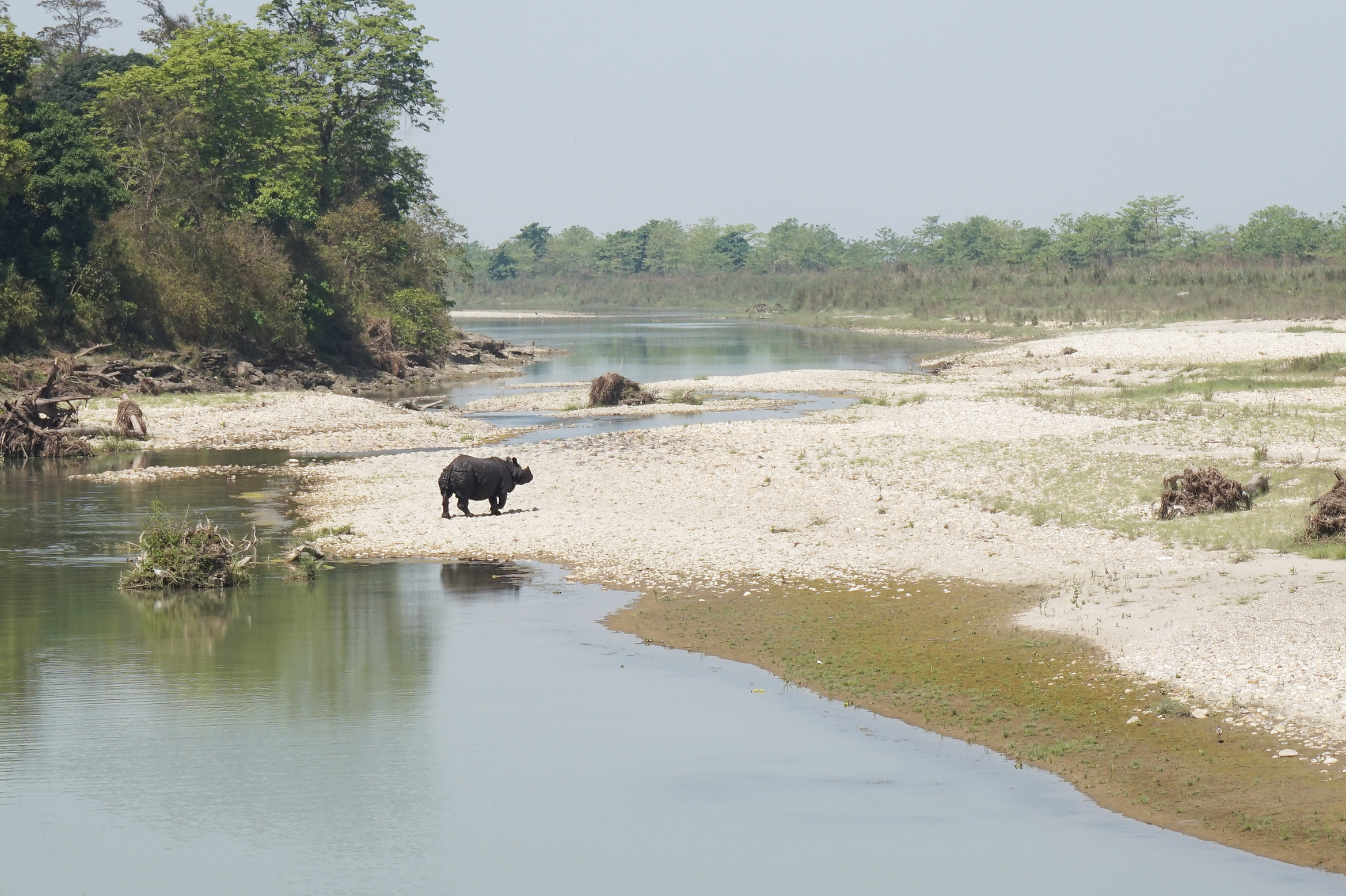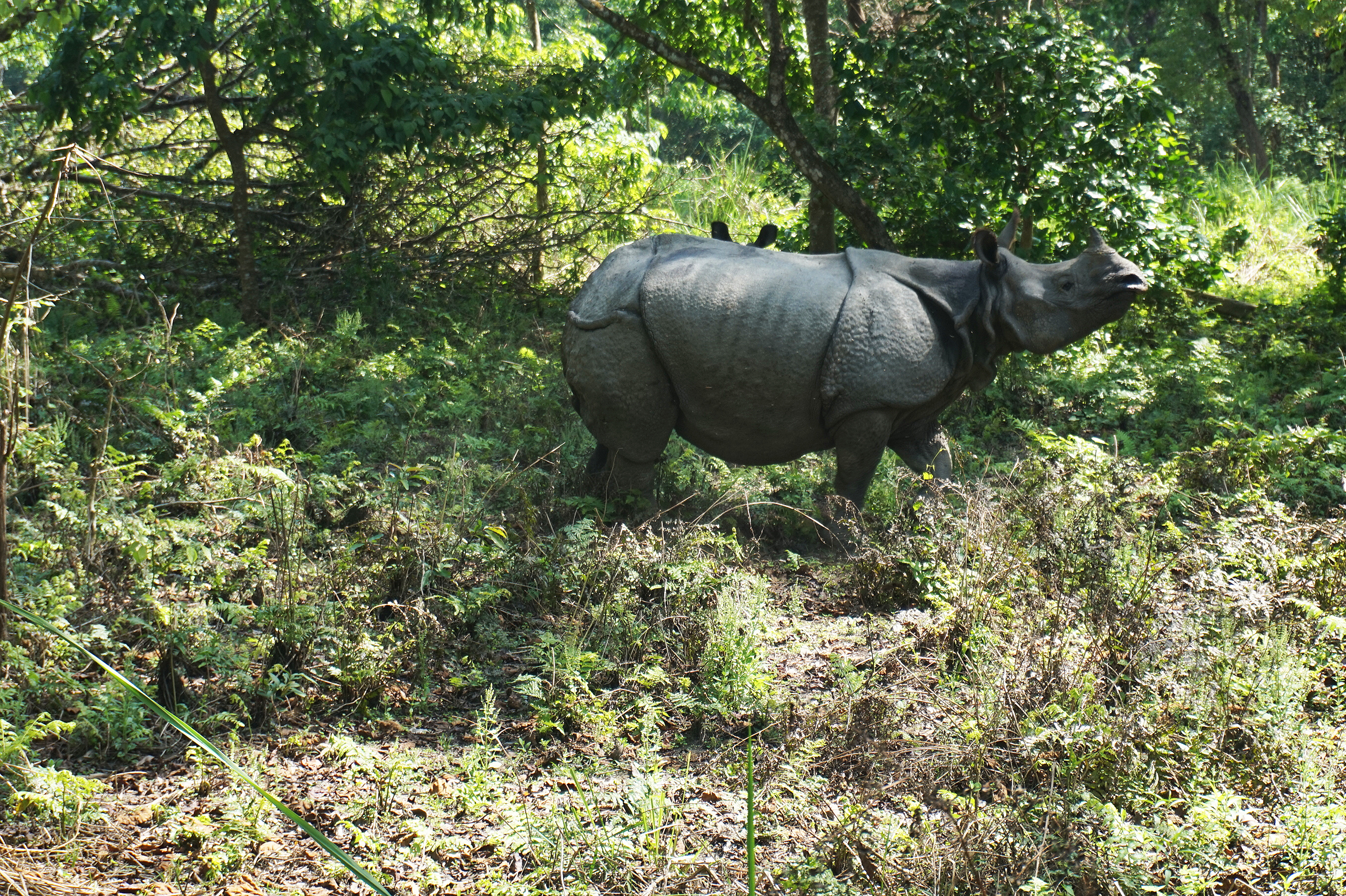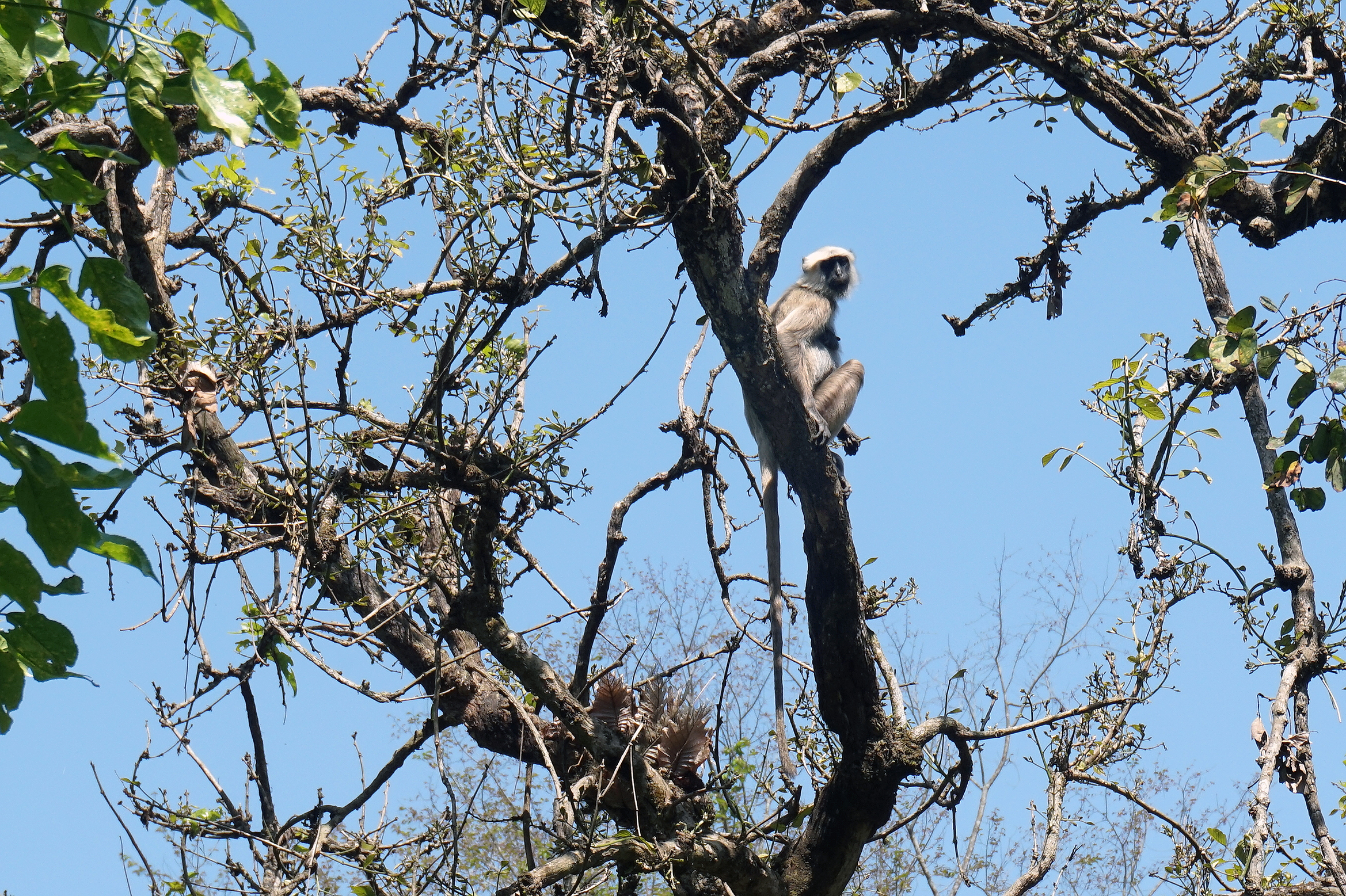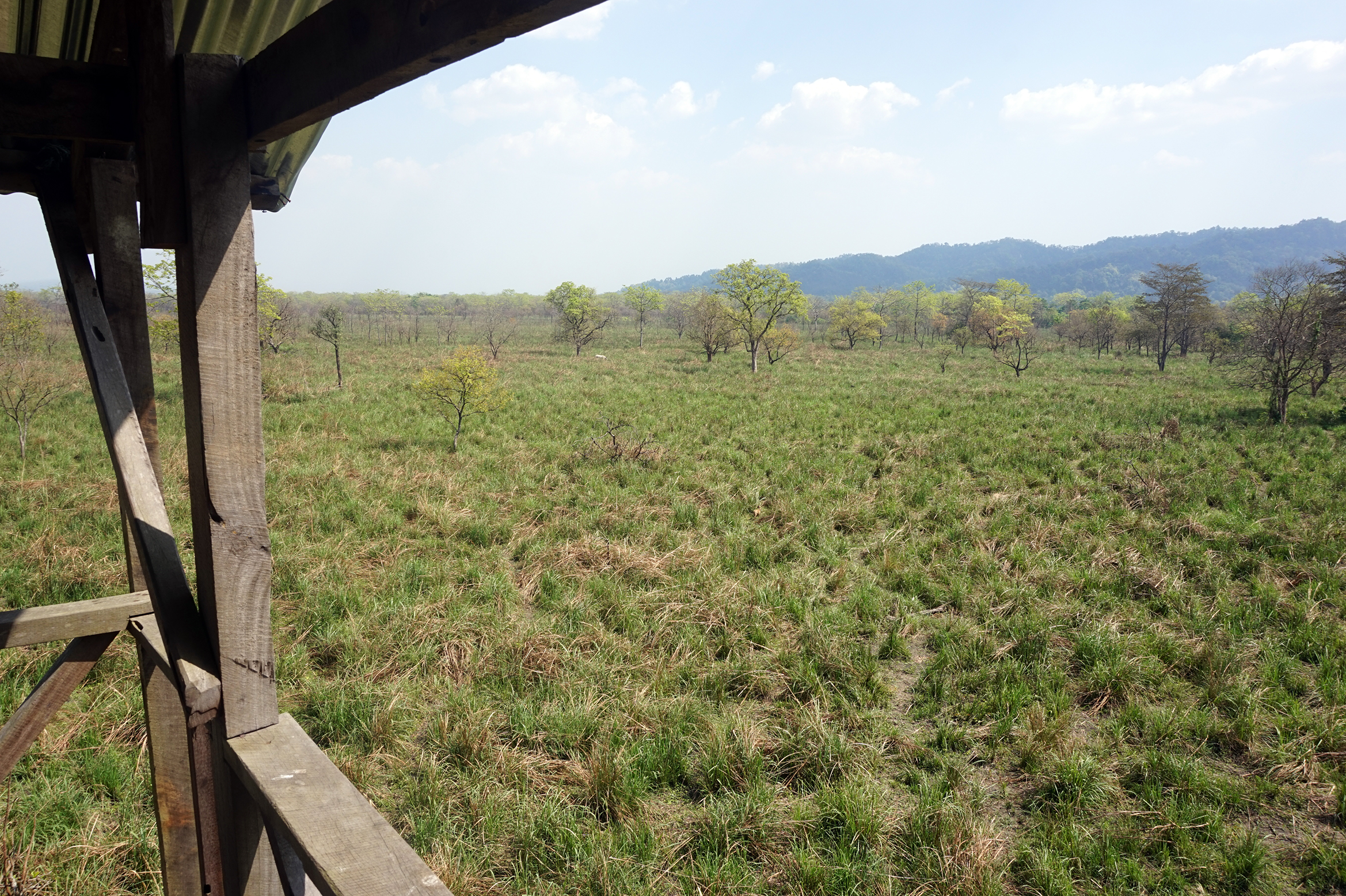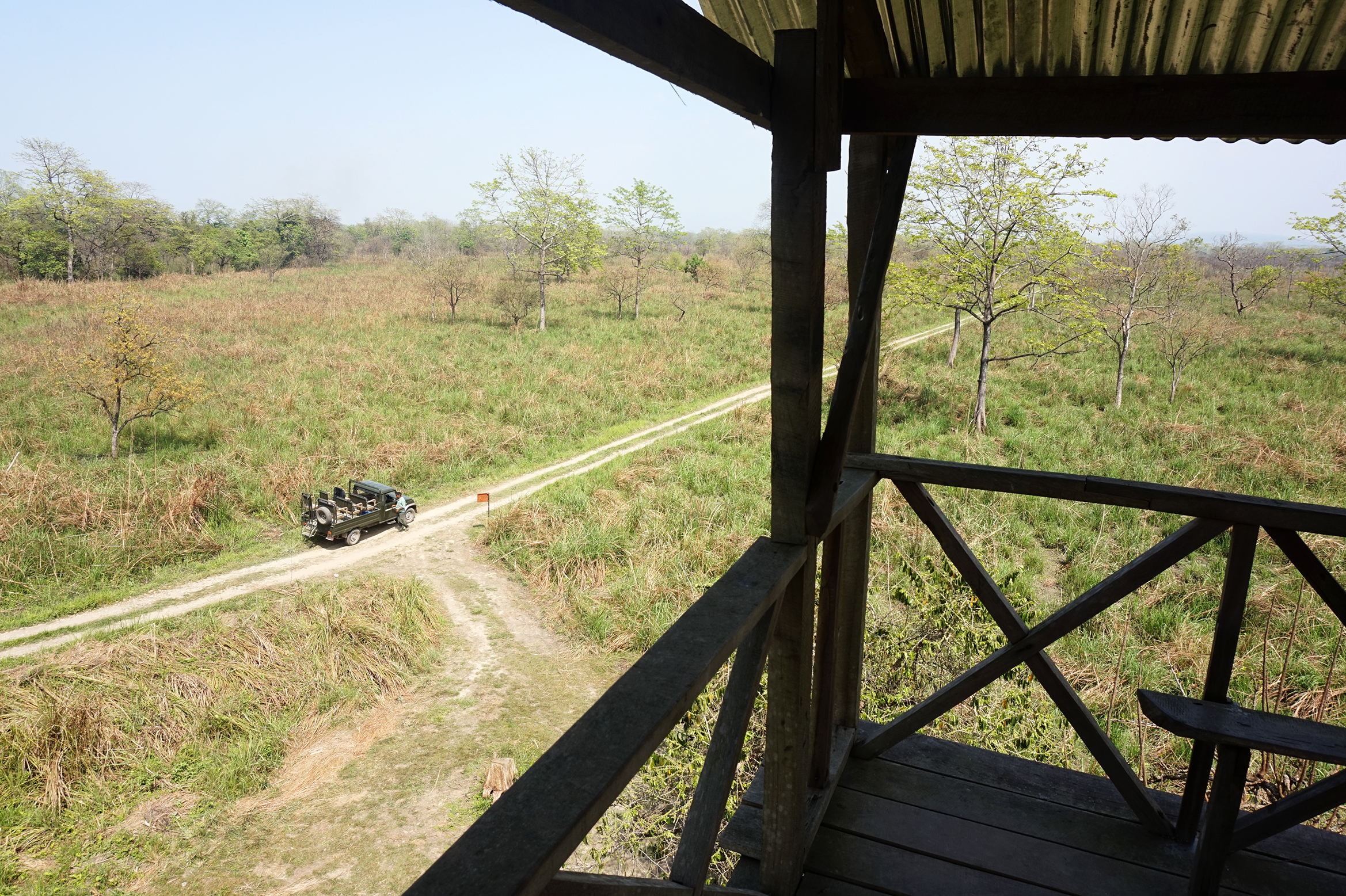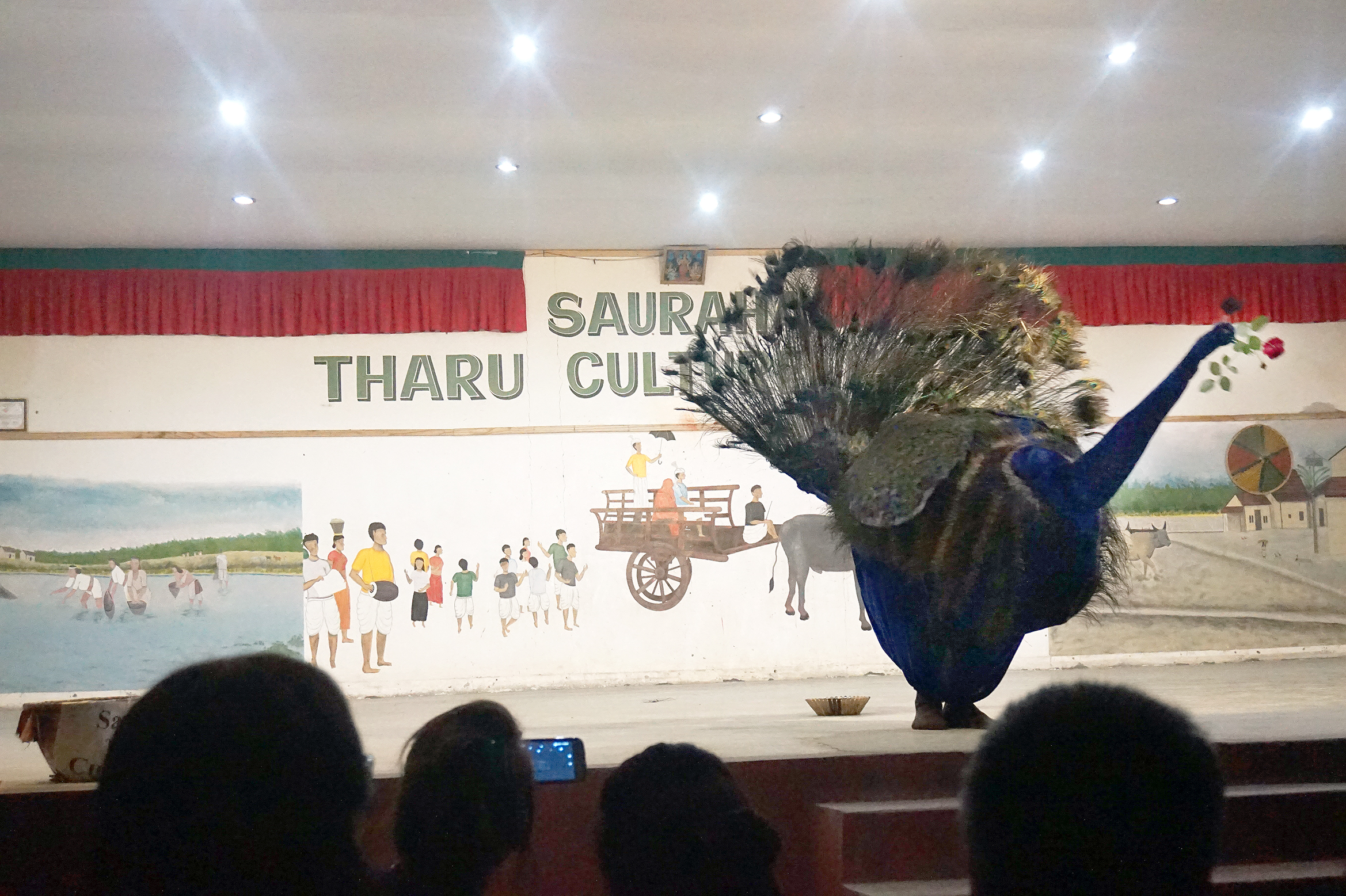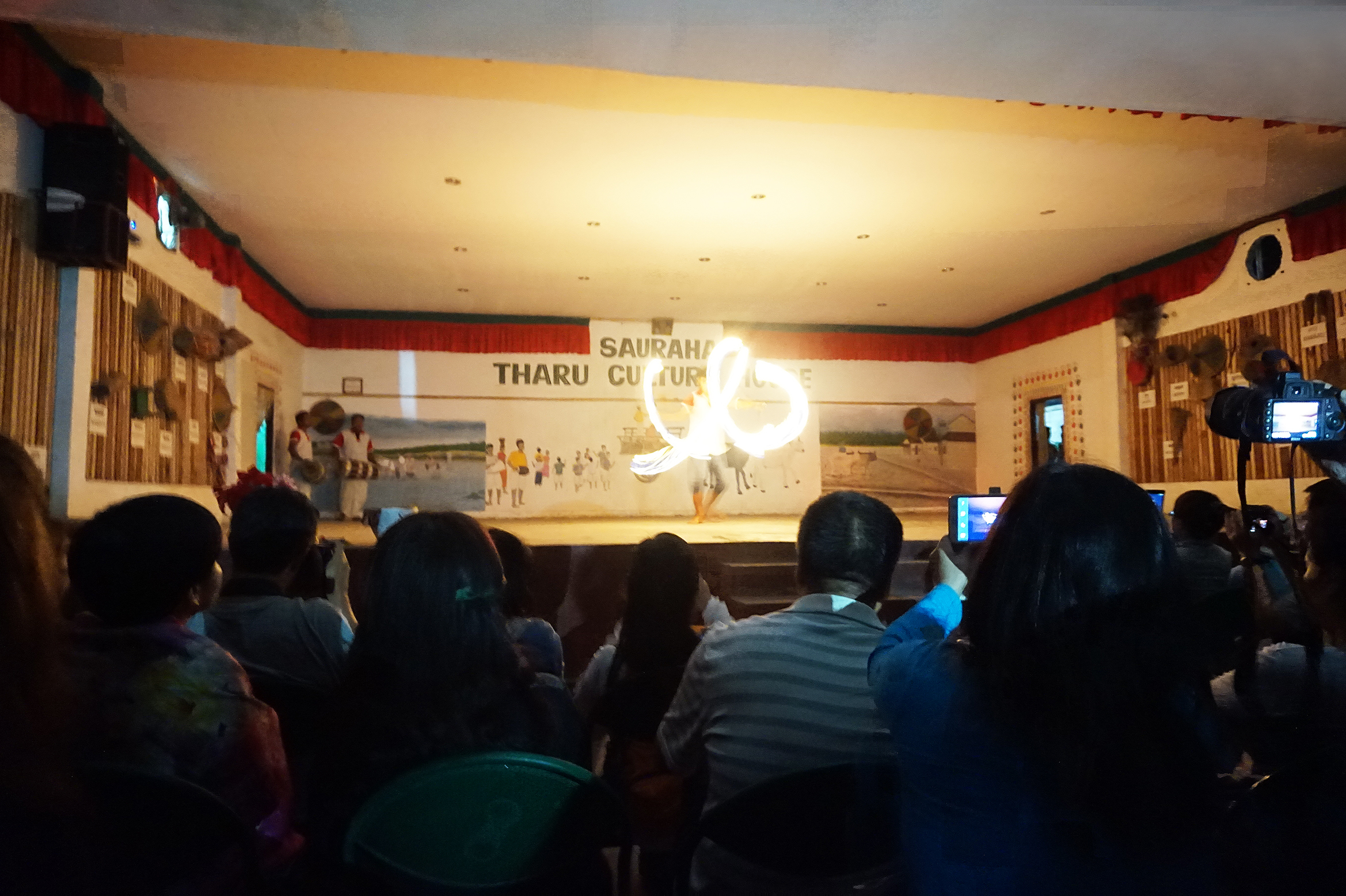CHITWAN NATIONAL PARK
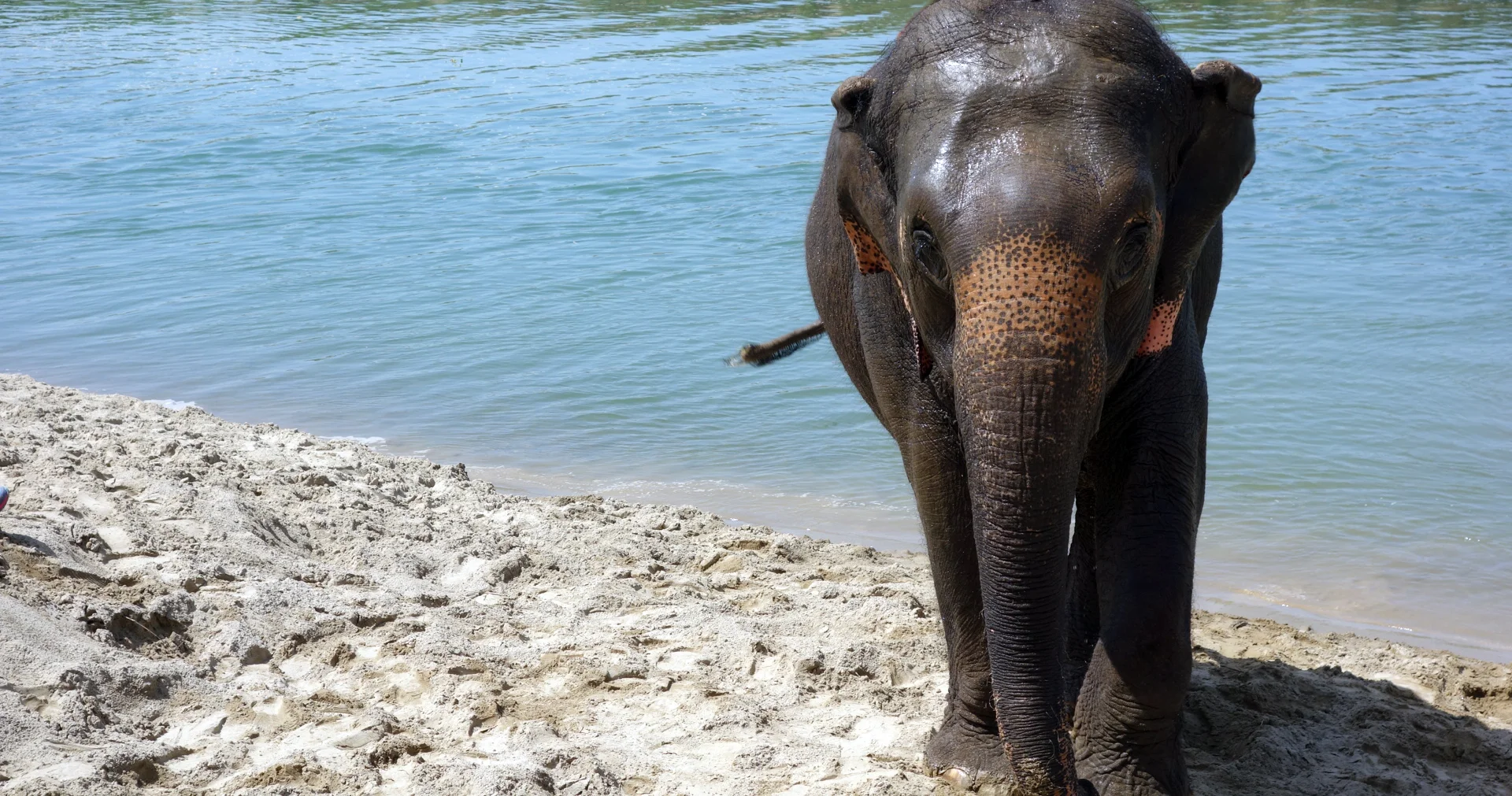
5th - 8th April 2015
We have arrived in Chitwan, a national park famous for its rhino conservation just north of the Indian border. It felt like we had arrived in a completely different country. The heat, the tropical landscape and the animals were all a million miles away from the Himalayan villages we had spent the last few weeks. We checked in to the Chitwan Gaida Lodge, recommended by our trekking buddy Du, luckily he was there when we arrived.
The lodge is a beautiful place set back from the main road of Sauraha. It is covered in tropical plants, tall bushy trees, bamboo huts and hammocks. It was bloody lovely. Apparently the owners are ornithologists (bird folk) which explains the amount of different trees attracting numerous bird species. Apparently out of the 800 or so species of birds native to Nepal, 500ish are found in Chitwan.
Within half hour of checking In, Du, Helen and I were bouncing along in the back of a pick up headed for a section of the river where elephants go to have a bath. It was an amazing sight. Like sheep dogs understand the calls of their farmers, the elephants understand the calls of their handlers. For about 30p you can grab a life jacket and ride with the elephants into the river whilst they bathe. The elephants skin is softer than you might think, especially its ears which were batting my legs. I guess it thought I was a fly that needed swatting.The handlers are near by and give instructions to the elephant to fill it's trunk with water and spray over its back and you. Eventually the elephant lies down in the water or in my case shakes it head until you are thrown off into the river. These elephants were government elephants.They are really well looked after, not over worked and bred in Nepal. Apparently there are many private elephant companies that mistreat them, so if you ever are in Chitwan and want to ride elephants make sure it's a government one.
The river is a natural border to the national park, to cross you need a guide and a permit. Due to poachers after rhino tusks, security in the park is taken very seriously. We sat and ate in a little bamboo shack on the sandy river bank. You could be forgiven for thinking you were by the coast.
We walked alongside the river in the afternoons and evenings taking a short detour around the elephant stables. The government elephants cross the river and roam the park in the day and spend the night in the stables. They resemble English countryside barns, just without any walls. This is for the elephants own protection from the wild elephants that live in the park, they are some of the most dangerous animals in Chitwan and would take out a sissy government elephant in no time. They get fed rice wrapped in a straw parcel, kind of like a massive dumpling. After the stables its nice to watch the setting sun slide behind the hills in the distance throwing golden light across the park and the river.
It was my turn to start feeling bad and over the next few days I got quite ill. I have coined this 'NePoorly' to rival terms such as India's 'Delhi Belly'. A few sleepless nights and an array of colourful pills from a health post and I was getting back to normal, although I'm not sure what is normal these days.
One of the days we hired a jeep and a lovely guide called Krishna, he has been a guide here for as long as we have been alive. After a 5am brekkie we raced off into the park to have a good old nose. We had to cross the river on a traditional dugout canoe which was fun in itself. The park is massive and hides many different habitats from vibrant tropical jungle and sandy river beds, to vast open grass plains and scorched dusty clearings.
Within about ten minutes we saw our first rhino standing not far from the jeep in the long grass. It was built like a tank with massive grey sections of armour. It looked very prehistoric and deadly. As we continued through the morning we saw four kinds of dear, numerous bright colourful birds (that Khrisna loved pointing out in his bird book), a wild elephant (apparently only one of twenty or so in the whole park) a couple of crocodiles pretending to be logs, a heard of wild bison (also apparently rare), a family of wild boar and loads more rhinos milling about.
In the afternoon we got a bit too close to a baby rhino and the mother charged our jeep. Luckily she stopped within a few meters startled by the noise of the revving engine and Khrisna shouting. It was a tense moment and we suddenly felt pretty small. They have been known to make contact with the jeeps here. I was glad to be up in the jeep, we past some poor buggers earlier walking in the scorching heat with two guides and only a couple of large sticks for protection.
We stopped under a canopy of wild monkeys for a while. They are crazy and seem to bounce through the trees as erratically as a the ball in a pinball machine. It was incredibly to sit and watch and puts Circe De Sole to shame. On the way back to the river crossing we quirky scaled a government watch tower and saw a sloth bear with its dark black fur and white nose. This too was apparently very rare as not much is known about their movements in the park, just that if one decides to attack it's pretty much game over. We were back in the boat by six as visitors have to be back across the river by sun set. It was a shame we didn't see a Bengal tiger but our numerous sightings more than made up for it. Maybe we will try and see one in India.
On our last night in Chitwan we went to a traditional Tharu dance. The Tharu culture stems from Chitwans past and there are still a couple of traditional Tharu villages today. The villagers perform captivating dances that bring various kinds of luck and good fortune. At times it looked a little like Kung-fu Morris Dancing which is a nice twist. There was one dance called the peacock dance where a man hopped and wobbled about a bit in a very odd looking peacock costume. I would have paid the 100rupee (65p) entrance fee just for that.
The following morning we said goodbye to Chitwan and Nepal as we caught a sunrise bus to the India border.

